ANNUAL
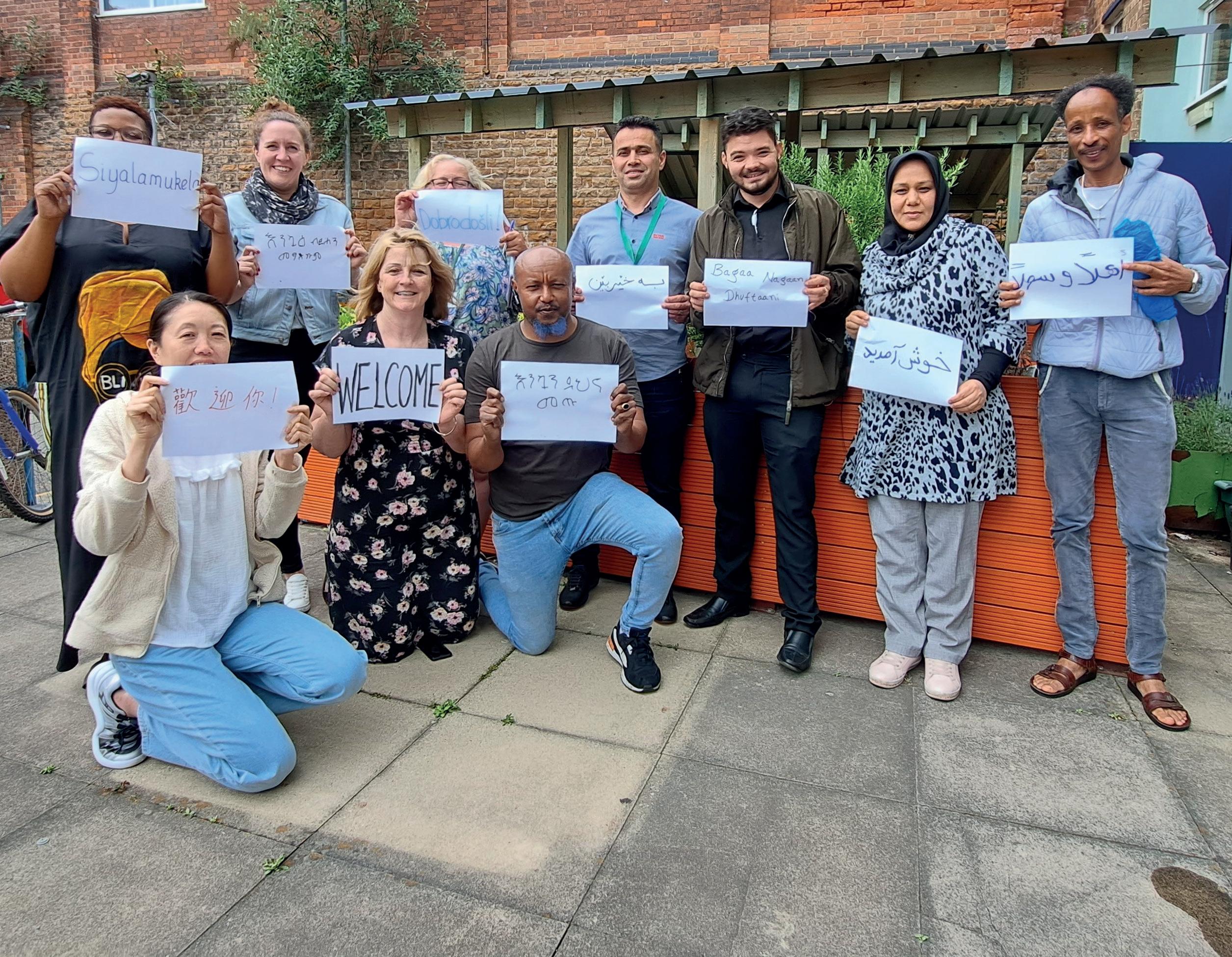
1
2021-2022
IMPACT REPORT
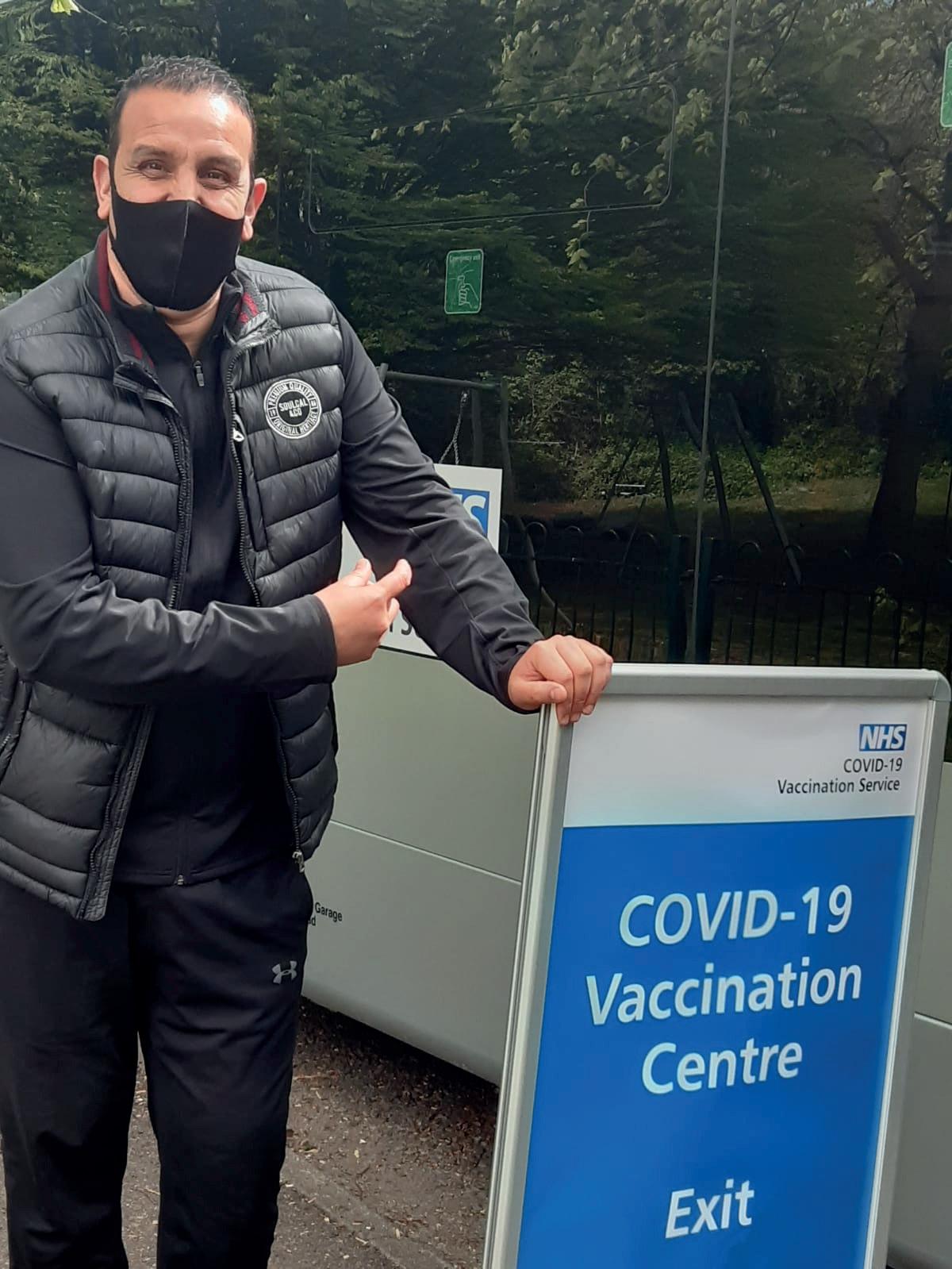
C O N T E N T S 2 3 6 7 8 9 11 13 15 17 19 21 23 25 27 29 31 32 33 35 37 39 41 42 45 46 49 53 54 Chair’s Report Director's Report Safeguarding Vision and Mission Highlights of the Year Anti Destitution Project Children and Families Communities of Identity Community Café Early Action General Advice Grassroots Initial Accommodation Into the Mainstream Language Justice Money Sorted Opportunity and Change Pamoja Women's Group Specialist Advice Team Volunteering Vulnerable Persons Resettlement Scheme Youth Project Membership Report Partner Organisations Staff Members Trustee Information Financial Review Fundraising Report Funders 1Unless they have expressed a preference otherwise, throughout this report clients’ names have been changed to preserve confidentiality and all photos appear with permission. 1
During the twelve months covered by this report (April 2021 to March 2022), Covid has continued to affect all our lives and how we operate at NNRF. We have focused on how we continue to deliver support and services in a safe and appropriate way, adapt to the changing Covid situation and embed the practice developed and the positive things we have learned from operating remotely.
The NNRF staff team expanded once again during the year under review. We have achieved long-term funding aims for additional services, for example the Fresh Claims Project, in partnership with Nottingham Arimathea Trust, and a Client Participation Worker post, which will provide a voice for asylum seekers and refugees and support client involvement in how the Forum’s services are run.
The new projects would not have been possible without the phenomenal achievements of the Grants sub-committee volunteers in attracting funding to NNRF. We are indebted to their expertise and commitment.
In August we were approached by Nottingham City Council to take on the Afghan Relocations and Assistance Policy (ARAP) Scheme. This scheme is designed to support Afghan people who assisted the British Armed Forces in Afghanistan. There was significant media attention around the scheme and this resulted in an increase in supporters and donations for the Forum. As a result of these new posts, the staff team has grown from around 30 to almost 40 people. The numbers of new clients accessing our services, both in person and via the phone, put significant strain on frontline services. To help resolve this, new service delivery models for General Advice, Anti-Destitution and the Specialist Advice Team were drawn up with relevant staff and implemented.
The increased numbers of clients needing our services and the Covid pandemic have led to more complex situations: it has compounded the isolation and loneliness that so many asylum seekers and refugees experience; it also created longer waits with many external agencies. This has put our valued staff team under increased pressure.

There has been a real risk of exhaustion and burnout for staff, due to the significant pressure around the impact of managing client needs and waiting lists with limited resources, alongside the daily pressure of navigating Covid. Despite all this, the major achievement of the year has been the maintenance of the high quality and wide range of support we have continued to provide for our clients.
NNRF has been lacking a long term strategic plan for too long. In the past year we Trustees and the Management team worked together to develop a one year interim plan which is guiding our work whilst we develop a more long term plan to start in April 2023.
Between April 2022 and March 2023 we plan to increase the opportunities for face-to-face working and socialising at the Forum, to listen and respond better to staff and clients and to plan for the future, focusing on efficiency, leadership and governance, culture of the organisation and diversification of income. We start 2022/23 in a strong position, ready to face the challenges that will inevitably arise. We have improved leadership and management and new appointments; we have secured significant funding to enable us to sustain and, in some areas, grow our service provision.
In March 2022, our Director, Matt Atkins, informed us that he would be leaving to take up a post at the Refugee Council. Matt, who joined NNRF in February 2019, redesigned our services to better respond to the growing caseloads and led the Forum through unprecedented and unpredictable times during the Covid pandemic. We wish him well in his new role.
NNRF will continue to do all that we can to support those seeking asylum in Nottingham and Nottinghamshire. The hostile environment has a devastating impact on the lives and the mental and emotional wellbeing of all those we work with.
Our asylum system is harsh and brutal to those coming to the UK having been forced to leave everyone and everything they have ever known. Yet our government is seeking not only to maintain the harshness of the system, but it is seeking to go even further; instead of making the refugee protection system more efficient, effective and fair, government reforms will punish and expel those in desperate need of safety.
As always, what we have achieved in 2021/22 was reliant on the willingness of our exceptionally committed staff, our many loyal volunteers and our dedicated Trustees, to give their time and expertise, and on the continuing generosity and commitment of our many donors, supporters and funders.
Their abiding confidence in our ability to have a positive impact on the lives of asylum seekers and refugees encourages and inspires us every day. Together we will continue to make an even greater impact.
2 CHAIR’S REPORT
Jennie Fleming
DEPUTY DIRECTOR’S REPORT
Royle
This year has been a year of change and adaptation for everyone, and NNRF is no exception. NNRF has moved from working completely remotely during the lockdown to gradually opening up to seeing clients face-to-face. By March 2022, we are all back in the building (at least some of the time) but still also offering remote appointments, because clients prefer different ways of making contact. We have adapted all our services successfully and responded to the changing Covid restrictions and the importance that staff felt safe.
Throughout the year, NNRF staff, volunteers and trustees continued to work together to support our clients, reviewing the effectiveness of our services in meeting clients’ needs and making changes to improve those services. The on-going restrictions and the difficulties they presented, especially in terms of communication, created real challenges to everyone at NNRF, but despite working in often stressful situations, everyone “pulled together” and should be very proud that NNRF continued to provide vital services which were centred on our clients.
During lockdown we received funding to employ staff to support people in Initial Accommodation hotels. This funding has ended, but we have since secured new funding to enable us to employ one part-time member of staff to support people who continue to be housed in unsuitable accommodation; this has caused a different set of challenges, in particular around mental healthpartly due to isolation and to families being confined to living in one small room.
In August 2021, we received funding to support the Afghan Relocation and Assistance Policy (ARAP) project, and we employed 3 new staff members, assisted by the current UK Resettlement Scheme (UKRS) team, to support families arriving in Nottingham and Nottinghamshire. The ARAP and UKRS funding was put out to tender in March, and we hope we are successful in being able to continue to work on these resettlement schemes.
There has been a considerable increase in the number of asylum seekers and refugees in Nottingham. Many are housed in local hotels or in a block of flats provided by the Home Office. There are around 1000 extra people in addition to our normal client numbers. Providing support to these people has impacted upon all services provided by NNRF and, unfortunately, has meant we have had to create waiting lists for some services.
Despite this, we have had many notable achievements in 2021-22. To be able to respond to the needs of clients we have sought to increase our partnership work. One example of this is the development of a partnership with Nottingham Arimathea Trust to start a Fresh Claims Project. This Project will work with refused asylum seekers to gather the information together for them to make a fresh claim.
We have also received funding to employ a Youth Caseworker for a year, and a Youth Activities Worker. They work closely together running a youth group and focusing on casework relating to young people, often Unaccompanied Asylum-Seeking Children (UASC).
In addition to receiving a grant of £25,000 from Garfield Weston, NNRF was the successful winner of the Weston Charity Award and so received a year’s support and mentoring under their Pilotlight programme. This has enabled us to explore the management and governance of NNRF. We have had the support of four “Pilotlighters” – individuals with successful backgrounds in business and finance, who use their expertise to evaluate, support and guide us. The “Pilotlighters” have been impressed with the breadth of our work as well as NNRF’s ability to adapt quickly to changing needs. We have found their probing questions and suggestions very powerful in helping us consider aspects such as efficiency, building on our strengths and developing a strategic plan.
A long standing ambition has been to be able to use the garden at the back of NNRF. The “Grassroots Community Garden” project literally blossomed during the year with several volunteers clearing, tidying up and planting. A new gate and a fence were installed, paths and steps built and a

3
Debbie
designated seating area paved in preparation for the creation of an outdoor space for clients to develop and use.
We have started an Equality, Diversity and Inclusion (EDI) group (led by a trustee) with staff and trustees, looking at how to make improvements to NNRF in terms of EDI. There have already been training sessions with staff and trustees.
Hallam have kindly been working voluntarily on our website and branding, and we plan to launch this in the summer of 2022.
At the end of this year, we have been finalising the pay scale review which will be implemented in May 2022. Pay scales will be reviewed annually.
Next year
Covid has taught us that it is often difficult to make plans, but it has also shown us that we need a clear, adaptable long-term strategy. As such, we hope to develop the organisation, building on our one year strategy and welcoming people back into the building with new staff specifically working towards making the café space more welcoming, making meals again, and getting clients more involved in every aspect of NNRF.
We hope to be successful in the bid for the Resettlement Schemes and to be able to plan to develop them and the Fresh Claims Project, as well as to gain funding to secure all our services.
Staff well-being continues to be important to us, and we continue to encourage staff to work at home and in the office in a way that is best for them, and enables them to undertake their work effectively. We also plan to have training and support sessions for all staff on Vicarious Trauma, which involves looking at how working with traumatised clients affects staff and how to deal with this. We plan to develop an appraisal system for staff and improve on our monitoring and evaluation processes. We will continue to work with other organisations and partnerships with joint projects and funding bids.
Other plans include:
• Reopening the café and running events in the café and garden
• Employing a fundraiser
• Implementing the Resettlement Scheme contract
• Securing funding for our General and Specialist Advice Teams
• Developing the work supporting staff around Vicarious Trauma
• Adapting our services to incorporate trauma informed principles
• Trustees to become more visible and known to staff through attending staff meetings Finally, thank you to all the staff, volunteers and trustees for their continued dedication and commitment to our work in ever changing circumstances. They all were, and continue to be, committed to the organisation and the work we do, and I am so often impressed and amazed by people’s support and dedication to NNRF and our work.
4
Strauss
Keeping People Safe: Our Approach
Safeguarding is at the heart of our work. Our aim is to support asylum seekers and refugees and to do everything we can to help them to feel safe and welcome. Our safeguarding policies and procedures make specific reference to safeguarding children and adults at risk. However, all NNRF clients may be considered to be “vulnerable” in respect of their immigration status and other personal circumstances, so our procedures for keeping people safe apply to everyone.
How we assess safeguarding risks
The Board of Trustees formally reviews risks associated with safeguarding as part of our 6-monthly review of our Risk Register. The trustee with oversight of safeguarding meets with the Safeguarding Team every month and the agenda always includes a review of current challenges and risks on the horizon. The Safeguarding Team maintains a central safeguarding register of all clients for whom safeguarding has ever been a concern.
Learning Lessons
The monthly Safeguarding Team meetings include a standing item on the agenda about recent “near misses”. The Designated Safeguarding Lead and the Safeguarding Team provide regular and frequent safeguarding updates for staff.
Our policy and procedures
NNRF’s safeguarding policy and procedures have been reviewed and renewed this year. All staff, trustees and volunteers have been trained in the policy. Our policy is underpinned by three fundamental principles – (i) that safeguarding is everyone’s responsibility; (ii) that we all need to know how to recognise the signs and symptoms of abuse and neglect and (iii) that we all have a duty to report safeguarding concerns.
Complaints, Concerns and Disclosures
Our policy is explicit about how to report any safeguarding concerns, including referral pathways to outside agencies. This includes any concerns about the conduct of staff, trustees and volunteers. The policy makes clear that if anyone feels dissatisfied with how a safeguarding concern has been dealt with, they can and should escalate their concern directly to the relevant agency (e.g. Social Care). We have a separate Whistleblowing Policy which sets out how individuals can – where necessary - speak up.
How trustees ensure the effectiveness of our safeguarding policies and procedures
The trustee with oversight of safeguarding meets with the Safeguarding Team and reports back to the whole Board every month. This includes a review of current safeguarding cases. As Covid restrictions have eased, the NNRF building has started to open up again in spring 2022. This will allow the safeguarding trustee to carry out other monitoring and evaluation activities including discussions with staff, volunteers and clients, and reviews of documentation.
Safeguarding cases handled in 2021-22
At the time of writing there are 38 open cases (adults and children) listed in the Safeguarding Register. These include clients suffering from poor mental health, including low moods, self-harm and suicide; sexual abuse; domestic abuse, neglect and vulnerability associated with destitution and homelessness.
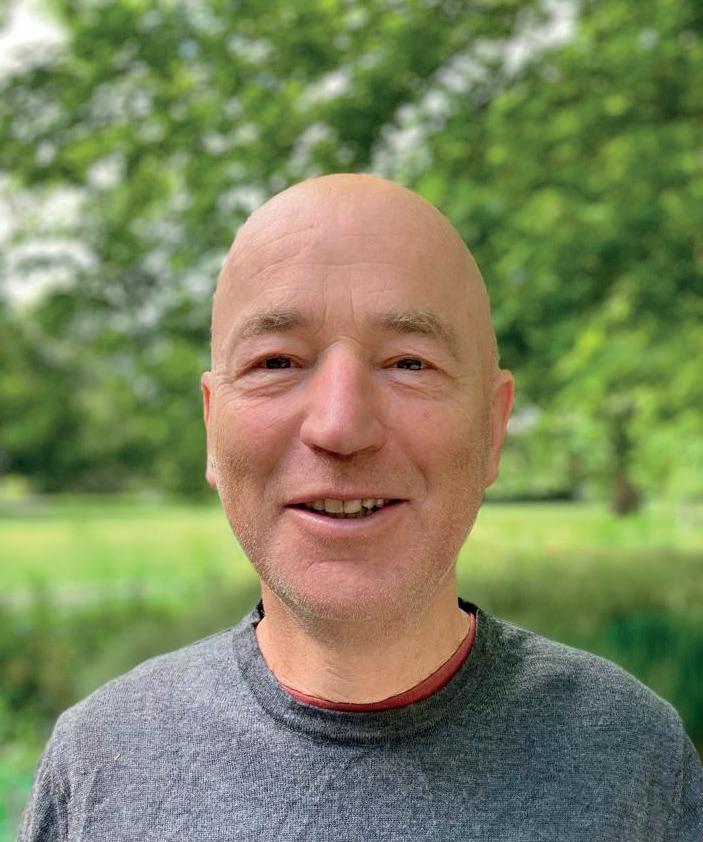
5
SAFEGUARDING REPORT
Pete
(Safeguarding Trustee)
The Board of Trustees would like to express their gratitude to all staff who worked at NNRF during April 2021 – March 2022 (and those who have joined us since) for their incredible commitment and hard work, without whose contributions and support the Refugee Forum would be unable to provide vital services to those in need of them.

We would like to acknowledge here the essential work of our operational staff, who are not named in the Project Reports but who work tirelessly behind the scenes to ensure NNRF is running smoothly:
John Gordon and Zanele Ndhlovu in finance, Zoe Kasujja, Nosheen Ahmed and Katie Rogers in admin istration, Bernie O’Rourke and Sally White in cleaning and staff from Elite Security Personnel.
Adel Hamad
Aiza Javed
Alex Rainbow
Alex Winters
Barbara S Dhliwayo
Bernie O’Rourke
Caitlin Sorrell
Charlie Stubbings
Daniel Robertson
Danika Bladon
Debbie Royle Fairouz Shermado Fatemeh Hosseini
Fawad Mousawi
Fiona Broome
Gaida Dirar
Gary Lockhart
Gemma Pillay Gita Salimi Hermione Berthels Hong Chi Iqra Mehdi Ivan Mvuyekure Jane Oakley John Gordon Joshua Aspden
Julie Whitehead
Kadria Fahmy
Katie Rogers Mai Ahmed Matt Atkins Matt Bedford Nawzad Mouloud Nicole Shametiova Nosheen Ahmed Oluwatobi Olupade Richard Martin Sally White
Sarah Norris
Sarah Wilson
Sebastian Bretnall
Sherene Bingham
Siobhan Gosrani Sonia Bilkhu Sophie Scott Thomas Tilahun Valeria Aquino Zanele Ndhlovu Zoe Kasujja
6 Staff
OUR VISION
A society where asylum seekers and refugees are welcomed, receive just and compassionate treatment and support in rebuilding their lives.
OUR MISSION
To support asylum seekers and refugees in Nottingham and Nottinghamshire in gaining just outcomes, rebuilding their lives and integrating into society.



WE DO THIS BY
• Providing a safe and welcoming space where everyone is treated with respect, compassion and dignity
• Offering free and impartial specialist advice
• Empowering service users to rebuild their own lives
• Positively embracing and celebrating differences
• Offering practical support to those who have no means to support themselves
• Building effective partnerships with community groups and relevant organisations
7
8 HIGHLIGHTS OF THE YEAR PARTNERS Our staff worked in partnership with 90 organisations INTO THE MAINSTREAM PROJECT 145 clients registered with a GP VOLUNTEERING 222 volunteers, from 48 countries, speaking 41 languages 26,000 hours volunteered per year 50 volunteers with lived experience of asylum (22.5%) LANGUAGE JUSTICE 91 people have attended our interpreting training course 90% of clients used our interpreting service 134 clients referred to ESOL classes ANTIDESTITUTION PROJECT 954 food collections for AD clients 14 clients were granted Leave to Remain CHILDREN AND FAMILIES 78 women attended the Pamoja Women’s Group. 106 children attended our family activities. COMMUNITIES OF IDENTITY 7 organisations provided a total of 4,489 people with Advice, Information and Guidance GENERAL ADVICE Trained 17 new General Advice volunteers 5,029 referrals to General Advice (39% increase from 20-21) SPECIALIST ADVICE 100% success rate in appealing asylum support refusals and discontinuations 305 clients supported into safe accommodation OVERALL We supported 2,054 clients with 1,475 dependents
Anti-Destitution (Target Group: Refused Asylum Seekers)
Project Leader: Gemma Pillay
Project Team Members: Gemma Pillay, Ivan Mvuyekure

Number of Volunteers: 25
Number of clients served: 106 total (94 M – 12 F)
Number of New Cases: 32
Project Description
Saturday Food Group
• Food bank offering selection of groceries, fresh fruit and vegetables and toiletries – collected from the Refugee Forum
• Clothes bank
• Social space for clients
Cash Group
• £40 per four weeks given to each individual
• Four-weekly update with each client
• On-going casework and referrals
Support applications
• Applications for Section 4 and Schedule 10 support when eligible
• All follow-up work which includes handling further information requests, preparing appeals, allocation of accommodation and post-dispersal
Referrals
• Internal referrals to Into the Mainstream, ESOL, New Refugee Clinic, Women’s Group
• External referrals to Nottingham Arimathea Trust, Host Nottingham, Social Services, British Red Cross, Bhatia Best Solicitors, ASAP
Project Successes
• Red Rose Hardship Fund – British Red Cross: total of £19,800 paid to 55 clients
• 24 clients have moved on to Section 4 support
• 14 clients have been granted Leave to Remain
• Return of clients coming to NNRF for food and cash collections
• Cloud Video Platform (CVP) support appeal hearings taking place at NNRF, expanding our service to clients applying for Section 4 support and challenging negative decisions
• 954 food collections
Plans and hopes for the coming year
• Hot food to resume at the Saturday Food Group
• Expansion of the Anti-Destitution Team following new funds granted for Anti-Destitution Project
Appreciation: we would like to thank…
As always the volunteers have made this project happen, offering their time, skills and care throughout this incredibly challenging year.
Bhatia Best Solicitors - legal challenges to support application delays
Asylum Support Appeals Project - advocating for and representing our clients at the Asylum Support Tribunal. Host Nottingham - running the clothes bank and hosting many of our clients over the year
Nottingham Arimathea Trust - accommodation and support provision for our clients throughout the year.
“The Saturday Group nurtures people with more than food. It provides emotional as well as practical support, helping people engage with life”
SFG volunteer.
“Hi my name is Keith and I have been using the project for over a year now. The project is of huge benefit to me in terms of services they provide from clothes, referrals to legal services, food and money. This charity has a good track record in helping others . Thank you for your charitable causes which helped me through the lock down and to date. The staff are very warm and welcoming. All members of staff work tirelessly to help us.”
Keith, Anti-Destitution Project Client.
9
“ “
Community Café
Project
Leader: Barbara Spreiz Dhliwayo
Number of Volunteers: 3
Project Description
Since we have increased in-person services in autumn 2021 and Covid restrictions were lifted, our Community Café once again became a safe space for clients waiting for their appointments or classes. Whilst the numbers of visitors are still low, hot drinks and snacks are offered alongside Wi-Fi access and leaflets with relevant information. We are hoping to re-build the community hub that the Café was pre-pandemic, re-introduce daily lunches and opportunities for volunteering later in 2022.
Project Successes
• We opened the doors again to clients
• Bought and installed a new cooker, thanks to funding from Nottingham City Council
• Executed a deep clean of the kitchen

Plans and hopes for the coming year
• Employ a staff member to manage the Café activities and make it an even more engaging and welcoming space
• Organise more social activities, including regular lunches
• Bring back and enhance volunteering opportunities in the Café and kitchen

Appreciation: we would like to thank… Safety Officers from Elite Security who have made the Café a safe and welcoming space for clients, Nottingham City Council for funding towards new kitchen appliances, volunteers, both current and former, who are encouraging us to move forward with opening up and developing the café.
“After the start of the pandemic I lost my job, and I would love to come back to NNRF to volunteer – cooking, cleaning, anything! As soon as you re-open the Café, please don’t forget about me. Every day I think about those lovely days, volunteering every Monday alongside Sonal and Kunal – I miss them all!”
“I never thought I’d say this but: one of the things I missed the most for the past two years is having rice and beans from the NNRF café for lunch! I can’t wait for the kitchen to get busy and the Café smelling of food again.”
10
“ “
Afghan Relocations and Assistance Policy (ARAP)
Project Leader: Siobhan Gosrani
Project Team Members: Siobhan Gosrani
Aiza Javed
Alex Winters
Sophie Scott
Jane Oakley
Sherene Bingham
Number of Clients served: 13 families (62 individuals)
Project Description
The Afghan Relocations and Assistance Policy (ARAP) scheme was launched by the UK government in April 2021 to relocate and resettle current and former Locally Employed Staff (LES) that worked directly with the British Armed Forces, the British Embassy and aided British operations in Afghanistan. The scheme was developed to resettle individuals who were considered most at risk from threat to life when NATO troops withdrew from the country in September 2021.
NNRF has worked in partnership with Nottingham City Council and Nottinghamshire County Council to provide specialist support to newly-arrived refugee families on the ARAP scheme since August 2021.
The ARAP team at NNRF work with families from their arrival in Nottingham for a period of three years. When they first arrive, families receive intensive support from caseworkers, ensuring that they have access to benefits, healthcare, housing and education.
As they continue to settle into the community, we support their integration through learning English, developing their skills to support employability and nurturing their individual goals and passions. The overall aim is to empower families to become independent and integrate into the UK.
Project Successes
• We are providing intensive, in-person casework to 62 clients, both adult and children (13 families) across five boroughs in Nottinghamshire
• 13 clients are enrolled in ESOL classes to improve their English language skills which comprise in-person sessions and online classes
• 8 ARAP women are attending an equipped2succeed 12-week course
• 8 clients are enrolled in the Employability and Life Skills course, which is run by the NNRF Employability Team, covering topics such as British values, benefits and finances, health and wellbeing, career planning, education and training, employability and job hunting
• 5 individuals attended the Interpreting Course which is run by Language Justice
• 4 individuals are in paid employment
• Families are regularly invited to integrational and community events. These have included Afternoon Tea, Welcome Meal, Picnic, Eid Dinner etc
• Children are involved in after-school activities including Saturday activities and arts and craft sessions
Project Targets/Outcomes
• Welcoming and assisting clients as soon as they arrive, and helping them to settle in and with tenancy paperwork etc.
• Ensuring critical registrations are done, e.g. bank account, Biometric Residence Permit (BRP) cards, benefits, GP, dentist, schools
• Integration planning, looking at the family holistically, e.g. employment, education, training, aspirations
• Assisting with orientation in Nottingham as well as cultural life skills orientation to support families to become familiar with life in the UK as soon as possible
• Working closely with schools to support children’s integration and educational needs
• Advising and signposting
• Encouraging 12 hours minimum of ESOL per week
• Providing interpreting services for non-Dari
11
or Pashto speaking staff to work with clients
• Safeguarding concerns escalated appropriately
• Supporting with Indefinite Leave to Remain (ILR) applications
Plans and hopes for the coming year

• Women-focused programme/workshop to increase engagement and involvement
• Exploring avenues to integrate individuals in the wider society, including offering volunteering opportunities and educational workshops
• Facilitating individuals to seek employment
• More clients resettled to rebuild their lives
• Additional integration initiatives for new arrivals to assist with their resettlement
Appreciation: we would like to thank…
• Carole Batey from The Furniture Project Nottinghamshire
• Department for Work and Pensions contacts in Nottingham and Newark
• Nottingham City and Nottinghamshire
Upon their arrival in Nottingham, Amir and Sara were housed in a council flat which used to be a residence for elderly people. Due to this, the flat was adapted and accustomed to the needs of an elderly person. Issues with the wet room required a lot of changes to accommodate the new tenants - this included the floor being old and stained, and a leak in the toilet seat and cistern which kept the bathroom always wet and contributed to the whole flat noticeably smelling really bad.
Subsequently, there was a lot of mould in the bedroom which resulted in Sara developing a rash on her body. The clients felt very uneasy with their housing situation, in fact, it contributed to their experience of cultural shock and disrupted their process of resettlement. They felt embarrassed to invite their friends to their house as everybody sensed the smell as they walked in.
We supported them by escalating the issue with the local council who replaced the floor along with the toilet seat and
County Councils
• Language Justice
• Caroline Seal from Trent Vineyard
•
cistern. We also asked the council to clean the mould in the bedroom. Subsequently, we supplied them with dehumidifiers and refills that will last them for at least a year. The clients feel pleased and content with the changes in the house. The changes have helped them with settling down and made their house a home.
“We are happy since the house repairs were carried out in the house, especially in the bathroom. Replacing the floor and cistern and installing doors in the middle to separate the toilet with the shower have been really useful. Before our friends would visit us and as soon as they’d walk in, they could sense the bad smell due to the flooring. It removed the bad smell. The damp and mould are also cleared which has helped us with our health. Sara was getting rash because of damp and mould but now she’s happy. Actually, we both are very happy. It feels like home and we like returning to our home by the end of the day. We are so grateful of your support throughout this process”
12
Church
Gareth Isaac from Nottinghamshire County Cricket Club
“ “
Children and Families
Project Leader: Sarah Wilson - Casework, Valeria Aquino - Activities
Project Team Members: Sarah Wilson, Valeria Aquino
Number of Volunteers: Children and Families Project 3, Pamoja Women’s Group 2
Number of Clients served: The Project works with parents and with children, and so we have divided the engagement numbers in this way
Casework: Lead clients 119: 77F, 42M. Dependents 240: 51 Adults 37F, 14M, 189 children
Events Participants: 163: 57 adults, 106 children
Pamoja Women’s Group: 78 women attended
Number of New Cases: 146 cases: 24 events/activities
Project Description
The Children and Families Project seeks to support holistically the most vulnerable families across the city and county. We do this by combining casework, outreach projects and events to best support clients, helping them to connect with others and to live with dignity and respect. We run a weekly women’s group (Pamoja – which means “together” in Swahili), creating a safe space for clients to be part of a community and combat isolation, while helping them to gain new skills, have fun and relax. We also provide children and wholefamily activities for children to explore and play with peers and for parents to connect with their children and other parents. Alongside these social events, we provide one-to-one and whole-family casework support to look at and help address the needs of all family members, no matter how long they’ve been living in Nottinghamshire. We undertake outreach work with staff and students in schools to help generate more informed, supportive and open educational communities for our clients. In addition we work in partnership with healthcare professionals, particularly midwifery and early years services, to reduce barriers to accessing appropriate healthcare.
Project Successes
• Uptake for casework has been high, demonstrating the need for the project. To meet this demand we have now recruited and trained volunteers to increase our capacity to respond to these numbers
• There has been a huge increase in the number of children and families engaging with the project. In the last nine months, while still dealing with the impact of Covid and rebuilding our social face-to-face
activities, we have exceeded previous years’ figures, with 241 clients attending events and 119 accessing casework support
• We have built strong working partnerships with Nottingham University Hospitals Department of Obstetrics and Gynaecology, running joint support sessions for pregnant clients as well as attending Multi-Agency Forums with Nottingham City Council, Health Visiting, Midwifery, and Children’s Public Health 0-19 Nursing Service to ensure joined-up support and clear communication channels
• Despite a difficult year for the project, due to reduced staffing, a gap in service and re-launching during the pandemic, we have built a very solid foundation from which to develop and have connected with a large number of clients
Project Targets/Outcomes
For clients, both children and their families, to be less isolated
• We have made huge strides in this area and our project has connected over 150 families in play and positive experience activities to help combat social isolation, as well as providing practical service access through casework.
• Community-building is an on-going aim and we have already achieved our target of increasing engagement with our project to meet this
13
• All areas of project activity feed into this objective and we have actioned work in each strand to build time, space and ability for children to engage in age-appropriate fun

• Casework allows parents to seek the support they and their children need, reducing the stress and burden on all family members trying to survive the hostile environment. This creates more space and time for social fun and ensures children are in schools learning with peers
• Our outreach work with schools helps make these transitions into UK education as stress-free as possible, addressing both peer understanding and staff knowledge to enable optimum support and integration
• Our women’s group builds parental confidence, community and skills, reducing reliance of parents on children to fill these gaps
• Finally, our children and families events directly create these age - appropriate spaces for play
• Pamoja Women’s Group has engaged in workshops around self-expression and we are planning confidence-building workshops to develop this further during the next year
• The children and families’ events have seen children grow in confidence over the course of a single workshop, and children who have come to several events growing in confidence and developing social skills with each activity
• Through casework we address the immediate support needs, whilst encouraging selfsupport and sufficiency through longerterm planning with clients. This helps them navigate systems independently as much as possible, whilst we offer a safety-net of support and advocacy to ensure fair access. Clients have moved from feeling overwhelmed to taking responsibility for multiple actions to resolve issues, thus reducing the length of our appointments and building confidence and collaboration in our sessions. This work will continue and we will work with each client to address their needs and starting points and build from that
For children to be able to have fun and spend time on age-appropriate activities
Empower clients to self-advocate and communicate with confidence
Plans and hopes for the coming year
• Expand our community outreach work. Hopefully this will be made possible with the increased capacity our new volunteer team will bring
• A wider variety of events including day trips. We have needed to build back our events engagement and adapt and adjust to government guidance changes in relation to Covid. Now we have achieved this, we can look to expand the kinds of events we run
• Continue to involve clients in delivering the support they need. Our aims are ongoing. How we achieve these will be determined by client need and input
Appreciation: we would like to thank…
Thank you to our volunteers, the partner organisations who have helped us develop and deliver events together and the schools who have engaged in fundraising and awareness sessions. Most importantly, thank you to the clients, who engage with and shape our project and are at the heart of what we do.
We have a client who is a mum with a disabled school-age child, who has been really struggling with support at secondary school. Changes in school site, support staff and pandemic operational procedures have put a huge strain on the child’s ability to engage in education and on mum’s ability to support and cope with the situation. A breakdown in communication with the school meant that mum wasn’t being informed of her son’s progress or the support in place, and this further increased stress and frustration. Through our project we were able to connect mum with the relevant on-site staff, discuss all current support, agree new forms of communication that recentred mum and her son in all discussion about his support and agree review dates so that this is a sustained and evaluated approach. With support, mum was able to self-advocate and confidently communicate her wants and needs.
“ We are so grateful to you to giving us the chance to be in such an enlightening project. Your support and sessions are helping women to get chance in trying themselves in various activities which are unapproachable to most of the refugee and asylum people”
“I don’t know how can I say thank you for yesterday. Honestly we have been involving many difficulties for long time and I have not had any chance to take my daughter out and make her happy. Maybe it is unbelievable but it is one of my dream to take my daughter to cinema, farm, theater and ....You made one of them come true”


15
“ “
Client Participation
Project Leader: Gaida Dirar
Project Team Members: Gaida Dirar
Project Description
For the first time, NNRF hired a dedicated staff member to engage with our clients – hear their feedback, ideas, needs and wants, and work with them to not only organise relevant information sessions and activities, but also represent their voices within NNRF and in partnerships with local and national organisations.
Due to the worker only being in post for two months, the project has not yet achieved all of its potential.
Plans and hopes for the coming year
As we are searching for a new Client Participation Worker, we look forward to continuing this important work, especially increasing engagement opportunities for clients, introducing an effective feedback and evaluation system, and developing a client representatives’ group. We hope to make it a permanent, full-time role and have been applying for relevant funding to implement this.
Appreciation: we would like to thank…
Many thanks to Gaida, our first-ever Client Participation Worker, who has made a great impact on our service users, volunteers and colleagues at NNRF in the two months she was with us – she owned the role and put all her heart into it.


16
Communities of Identity
Project Leader: Debbie Royle, Josh Aspden
Project Team Members: Sophie Scott, Debbie Royle, Josh Aspden, Sarah Norris
Project Description
The Communities of Identity Project is a consortium of 14 organisations that deliver a range of activities and services that help asylum seekers and refugees obtain information, advice and guidance, provide a range of skills and confidence building activities including intergenerational work and youth activities, and enable them to become active citizens.
Managed by a Partnership Coordinator, it also provides support to smaller groups and organisations through bespoke training/advice and a small grassroots grant scheme. This year it supported 6 groups to develop and run new activities.
Project Successes
The success this year is that the project continued to run successfully despite a number of obstacles. We have had a large turnover of staff, with the role covered by 4 different people over the year. Covid also meant that we were unable to run events or meetings face-to-face. However, we continued to support asylum seekers and refugees and groups remotely, and face-to-face when we could. We were successful in gaining this funding for another year (2022/23), although with a 24% cut in funding.
Project Targets / Outcomes
Information, Advice and Guidance:
Target 3,782 people; 4,489 were supported by 7 organisations
Building Skills and Confidence:
Target 513 people; 668 were supported by 6 organisations
Improving/acquiring English Language skills:
Target 185 people; 424 were supported by 3 organisations
Support for basic needs: Target 186 people; 1,811 were supported by 3 organisations
Volunteering: Target 90 people; 212 were supported by 7 organisations
Support for development of group: Target 41 groups; 37 groups were supported by 3 organisations
Young people supported: Target 65 people; 98 were supported by 2 organisations
Intergenerational work: Target 40 people; 41 people were supported by 1 organisation
Plans and hopes for the coming year
The CoI Consortium hopes to continue to improve services in Nottingham for asylum seekers and refugees through information, advice and guidance, individuals receiving support for basic needs, asylum seekers and refugees improving/acquiring English language skills, individuals supported to volunteer, groups to develop, young people supported, and intergenerational work.
Partner organisations / Appreciation: we would like to thank…
Nottingham Arimathea Trust (NAT), Refugee Roots, Nottingham Community and Voluntary Service (NCVS), East African Education Centre, African Institute for Social Development (AISD), Belong, Begin, Vanclaron CIC, Emmanuel House, Host Nottingham, Senior Support Group, Mojatu Foundation, Cameroon Support Group.
17
M is a young man from Sudan and a new arrival in the UK. He attended our English for Speakers of Other Languages (ESOL) classes as a beginner (Pre-Entry). During his classes he spoke to his teacher about being lonely and not knowing anyone in Nottingham. He made good progress in the Pre-Entry class and was able to progress to an Entry 1 class. He has made friends with people in his group and has grown in confidence. He reported to his teacher that he feels a lot happier now that he has made friends. He will now be invited onto our employability training to help him understand the labour market in the UK.
Nottingham Community and Voluntary Service (NCVS) - the CoI funding allows us to offer group support for free to those groups run by, or offering services to, asylum seekers and refugees. NCVS can extensively increase its reach to these communities by being part of this consortium.
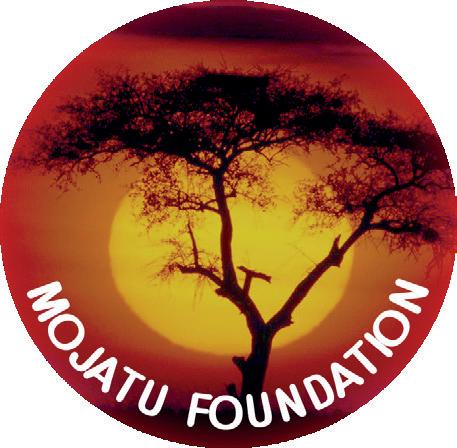

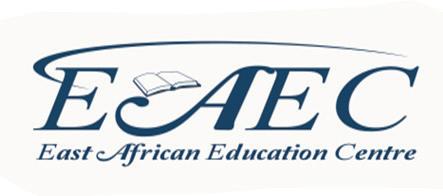
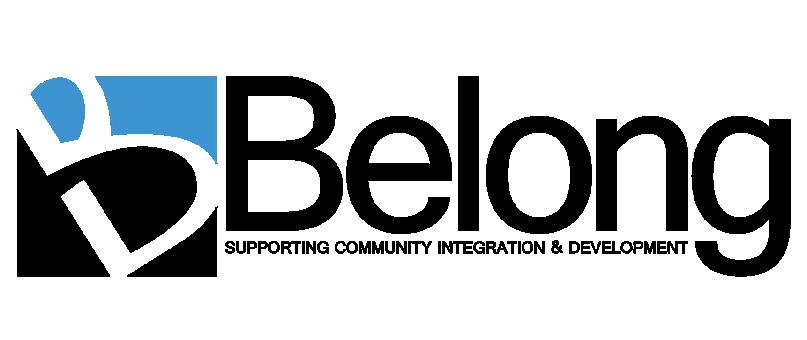
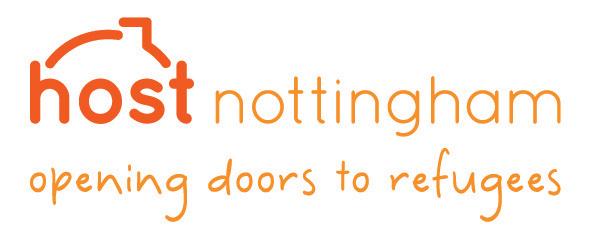
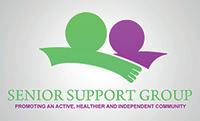

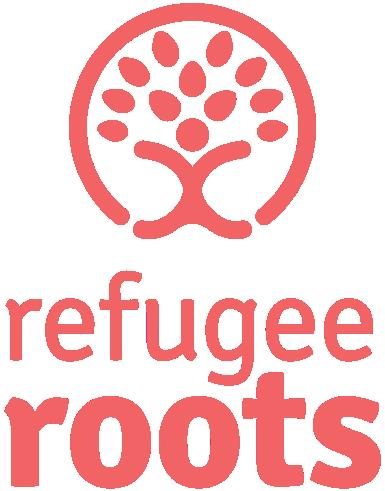

Nottingham Arimathea Trust (NAT) - being part of the CoI is a great benefit for our work and the approach that NAT chooses to take when working.
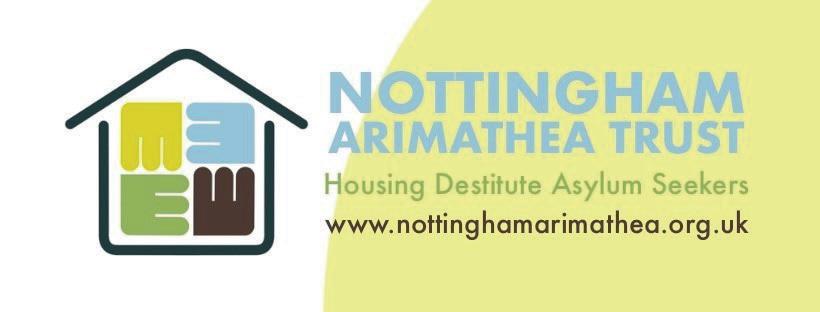
18
“ “
Early Action
Project Leader: Sonia Bilkhu
Project Team Members: Sonia Bilkhu; Aiza Javed; Charlie Stubbings
Number of Volunteers: 37
Number of Clients served: 428: 107 female, 310 male, 1 unspecified
Number of New Cases: 685
Partner organisations: Refugee Action
Project Description
Early Action (EA) focuses on empowering newly arrived asylum seekers and newly recognised refugees by providing information and advice and by developing skills, confidence and resilience to navigate through the system, with the aim of preventing and de-escalating the crises they experience early in their journey.
The project also enhances the experience of clients by positioning their voices at the heart of service design, using their evaluation and feedback. The project evaluates what works within the service, to encourage innovation, seek good outcomes and act in a preventative rather than reactive way to identify the aspects of the system that often leads to crisis.
At NNRF we implement the principles of Early Action in a number of ways across projects, mainly through the New Arrivals Clinic, New Refugee Clinic and the New Refugee Resettlement Support Service. The service is delivered by General Advice and the Specialist Advice Team.
The New Arrivals Clinic registers newly dispersed asylum seekers and ensures that they are able to access healthcare services, legal advice and other important immediate needs.
The New Refugee Clinic deals with newly recognised refugees and eases the transition from asylum support to mainstream benefits with the aim of preventing destitution in this client group.
The New Refugee Resettlement Service is a one-stop-shop for all newly recognised refugees. Clients receive tailored, one-to-one support from their assigned caseworker from the point when they receive their leave to remain, until they are accommodated in suitable housing and they receive a stable income. The purpose of the programme is to empower clients to make informed choices and prevent homelessness and destitution in the refugee community.
Project Successes
• 63 clients assisted by the New Refugee Clinic
• 136 clients received resettlement support following a positive decision on their asylum application
• 229 newly dispersed asylum seekers have been helped within General Advice during the last year, including 107 living in initial accommodation
• 199 new refugees helped to access sustainable accommodation and to obtain a stable income
• Clients are less anxious about their situation. They become aware of what to expect, what the next steps will be and what actions they can take to avoid a crisis such as homelessness and destitution
Project Targets/Outcomes
To design and deliver services and systems that help people in the asylum system to prevent or de-escalate crisis. In accordance with the Early Action Programme, we are constantly evaluating and adapting our services to provide early intervention rather than responding to crises.
19
Plans and hopes for the coming year
• We hope to implement the principles of Early Action across our service and seek new, effective ways to support our clients better
• We will be focusing on the Specialist Advice Team this year. We hope to develop a volunteer project to help us deliver the service. We also plan to produce integration resources or workshops to equip clients with the knowledge and skills they can use to rebuild their lives in the UK
• We will strengthen existing partnerships, form new ones, explore different ways to collaborate and share best practice
Appreciation: we would like to thank…
Our main partner, Refugee Action. All our staff and volunteers for their kindness and positive attitude while guiding vulnerable people on their incredibly challenging journey through the UK asylum system and beyond.

“
“Soon after he came to the UK, Ahmed was dispersed to a Home Office accommodation in Nottingham. He did not speak English and did not know anyone in the area. He wasn’t provided with an Asylum Support Enablement Card (ASPEN) on arrival and had no money. He also suffered from severe back pain caused by an injury and needed medical attention. He came to the Refugee Forum and was seen by a New Arrivals Clinic volunteer. The volunteer registered Ahmed on our system, explained what we do and how we can help. He addressed the most pressing issue which was the lack of money. He helped Ahmed report this to Migrant Help and Ahmed received a small cash grant of £20 and a food bank voucher to sustain him for the following week. Ahmed visited the clothes bank and got some warm clothes. He was then referred to ESOL classes at the Forum and at college and referred to our in-house health project, the ITM, for help to register with a GP. The client did not have a solicitor to assist with his asylum claim so the adviser explained why it is important to obtain immigration advice, booked an appointment with a law firm and directed Ahmed to the Right To Remain Toolkit Arabic version for more details about the asylum process. The client felt better and more in control of his situation. He was reassured that he can come to the Refugee Forum if there are any more problems or if he needs advice on anything. “
‘Thank you dear for letting me know. I don’t know these things and I don’t have anyone whom I can ask. Thank you so much.’
Mariam, NNRF client
‘Thank you very much again. From now on I will do my work for myself.’
Khalid, NNRF client
20
“
General Advice
Project Leader: Hermione Berthels
Project Team Members: Hermione Berthels; Sarah Wilson
Number of Volunteers: 41
Number of Clients served: 1,554 (1,126 Male, 425 Female)
Number of New Cases: 4,253
Project Description
The General Advice service (GA) provides advice, information and assistance on a wide range of issues including destitution, housing, debt, welfare benefits, health, legal advice and asylum support. The advice is given by a team of volunteers, and operates four days a week. The objective is to provide basic support and assistance to clients, resolve queries, signpost to external services, and refer to specialist in-house projects and partner agencies where appropriate. It is the main point of contact for new and existing clients, and is currently operating as a combination of a face-to-face service and a remote phone-based service.
Project Successes
Over the course of the last year, we have adapted General Advice from being an entirely remote phone-based service to a hybrid model in which we are offering both face-to-face appointments and phone appointments with our clients. This has been a complex process, in which we have had to constantly adapt around the changing Covid situation and the impact this has had on staff, volunteers and our clients. We now have a very flexible and resilient system, in which we can easily change the balance between face-to-face and remote work depending on the current situation. Operating a hybrid system is certainly more challenging than operating a purely remote service, but it is enabling us to meet our clients’ needs more effectively. Between 1st April 2021 and 31st March 2022 there have been 5,029 referrals to general advice; this includes both clients accessing our remote and face-to-face reception and referrals from other sources, such as our website, our interpreting team and other NNRF projects. Our reception has been opened up so that clients who come to the Forum now have their details recorded by our reception volunteers. They can then be contacted by the General Advice team at a later stage without them having to call our phone line. This is clearly beneficial for those who have struggled to access our phone service. As we now have General Advice volunteers based at the Forum on most days, this has also opened up the possibility of dealing with some emergency cases on the day, with an adviser working with the client face-to-face. There was an average of 25 referrals per day to General Advice over the year, with the number of clients coming to the Forum to access our face-to-face reception rising to an average of 10 per day in March.
We have continued to adapt our General Advice service in response to changes, such as the opening up of additional initial accommodation for new asylum seekers in Nottingham. 229 newly dispersed asylum seekers have been helped within General Advice during the last year. 13 new General Advice volunteers have been trained over the last year, and 4 new case administrative volunteers. There has been a low turnover of volunteers within General Advice, and it continues to be a very reliable and experienced team. The New Refugee Clinic volunteers have continued to support the Specialist Advice Team (SAT).
Caseworkers help with bank account opening and Universal Credit claims when there has been capacity within General Advice to do so. As always, we will continue to look for opportunities for General Advice to support staff from other projects when we can. During the last year, 63 clients have been helped within the New Refugee Clinic.
Project Targets/Outcomes
To create a hybrid General Advice service, combining both face-to-face and remote appointments. The new system is now in place and operating effectively.
To open up reception to enable clients to access our service without using a phone. An

21
increasing number of clients have accessed General Advice via our face-to-face reception service, rising to 10 per day in March.
To continue to adapt General Advice to changes in circumstances, including spikes in demand. For non-urgent enquiries, we aim to call back all clients within a week, and we have managed to keep to that timescale for the vast majority of our clients.
Plans and hopes for the coming year
To create the possibility of providing advice on a drop-in basis again, not just for emergencies, in response to the increasing number of clients accessing our face-to-face reception service.
To develop the role of the in-person reception volunteers further so that they can take more actions in support of General Advice, such as issuing appointments and providing some basic signposting and advice. To update and improve the resources available for reception and General Advice volunteers to use.
Appreciation: we would like to thank…
The three teams of volunteers involved in General Advice - general advisers, case administrative volunteers and reception volunteers - continue to do an absolutely amazing job, and are a huge pleasure to work with. The way that they have been prepared to continue adapting to the everchanging situation, doing their very best at all times to help our clients, has been fantastic and their hard work is hugely appreciated.
The Language Justice team continue to offer so much support to General Advice, finding new ways to help things run smoothly, and we are extremely grateful for this.
Thank you also to all our partner organisations, including Migrant Help, the British Red Cross, Host Nottingham, Begin, Hope Nottingham, St Ann’s Advice Centre, Refugee Roots, Halliday Reeves, Nottingham Law Centre, Bhatia Best, Sharewear Nottingham, The Arches, Sustrans, Nottingham Bikeworks.
“Abdel was dispersed to Nottingham in February 2022, and called our remote reception service for support with a variety of issues. He was booked in for a face-to-face appointment to complete his registration with us, and was then given support with applying for English classes – both with Begin and at NNRF. We helped him apply for an HC2 certificate (full help with health costs), and signposted him to local solicitors. He was referred to Into the Mainstream (ITM) for support with registering with a GP, and was given access to the clothes bank run by Host Nottingham . He called back to our reception on a later occasion, and was given support with raising complaints about his accommodation with Migrant Help. He was also referred to Sustrans for access to a bike so that he can travel round Nottingham more easily, including to access English classes.
“I am really pleased with your service. I appreciate all your help, and the good treatment and respect you are giving to refugees.” GA client, March 22.
“It has been an incredible experience to volunteer at NNRF for almost a year. I have learned quite a lot about the UK Asylum System, improved my communications skills and acquired a great understanding of the refugee experience. Despite starting my role during the pandemic, I have been provided great training and immense support throughout my volunteering experience. Whenever I struggled as a volunteer, there was always my supervisor that I could reach and get help from as we can deal with complicated cases. Overall, it was a unique experience in which one can make a difference and improve things for them in often the most difficult time of their lives.’’ Begum Karacaoglu, GA volunteer.
22
“ “
Grassroots Community Garden
Project Leader: Debbie Royle
Number of Volunteers: 17
Project Description
The plan is to create a space where clients, volunteers and staff can meet, sit, talk and children can play safely.
There is a huge demand for green outdoor space and growing space for those who live in the city, and our garden can provide that for many of our clients. The garden is being developed for clients to use in whatever way they want – to meet, socialise, develop new skills and volunteer their gardening skills to grow flowers, fruit and vegetables.
We are applying for funding to develop and support this project, but we also recycle, re-use and re-purpose wherever possible and we use environmentally-friendly materials in all we do.
Project Successes
This huge space was buried under weeds and brambles before and during lockdown, but over the past year a group of amazing and committed volunteers have cleared, dug, strimmed and planted. They have laid paths, built steps and created vegetable patches. They have dismantled, relocated and rebuilt a shed and have completely transformed the area.
The volunteer group is growing steadily and currently meets twice a week. They encourage visitors to the garden when they are there, to meet on the new patio, relax or even join in the work!
Plans and hopes for the coming year
• Build a pond and develop the cooking space and stage
• Extend the existing patio area, install safety rails around the perimeter and build a gazebo to provide shade
• Access funding for and recruit a Garden Coordinator in order to increase client involvement and participation in planning future developments
Appreciation: we would like to thank…
Funders: Magdalen College Oxford, Catalent
“The Garden Gang” - our wonderful team of volunteers, without whom none of this would have been possible!
Despite the modest contribution to the project, I feel very proud and self-satisfied. This project was a shift for me. It’s the first activity I join in after moving to the UK. I felt useless and lonely, but participating in this project helped me regain self-confidence. Also, it allows me to return to practising architecture after a long hiatus due to years of war and displacement. The project team welcomed me warmly and helped me integrate into the team quickly. Just being in the garden and looking at the significant development that has taken place from the beginning of the project until now makes me feel satisfied and proud. For me, this project is a complete psychotherapy journey. Bilal Hazzouri, volunteer



23
“ “
Helping each other and being a team - a team with variety
I like how the younger members are strong and help do the heavy stuff
I like nature - the plants - and the people
I like planting and talking and then relaxing afterwards
Creating a new garden for refugees; making a safe and beautiful space for positive mental health












Meeting new people with a shared interest in gardening
Caring, diversity, challenging, physical exercise, changes through the seasons, hope for the future
The lots of different conversations
Optimism that something lovely comes out of a waste land
The potential good that can come out of this garden is massive - for everyone at the Refugee Forum.
24
Initial Accommodation
Project Leader: Sebastian Bretnall
Project Team Members: Sebastian Bretnall; Sarah Wilson
Number of Volunteers: 6
Number of Clients served: Male: 34; Female: 9; Total: 43
Number of New Cases: 73
Partner organisations
• SERCO (the company awarded the Asylum Accommodation and Support Services Contract by the Home Office in the Midlands and East of England) – we developed a professional relationship based on our advocacy on behalf of the Initial Accommodation (IA) residents
• Migrant Help – we developed a relationship through raising issues regarding asylum support for IA residents, both an on individual and structural basis
• Nottingham City Council Community Cohesion Team – we worked together to coordinate and develop the multi-agency response to the IA hotels
• Host Nottingham – we referred a significant number of cases to Host for their scheme of delivering clothes parcels, as well as their Side-by-Side befriending scheme
• St Nic’s Church – we coordinated with St Nic’s to establish various activity groups for IA residents, such as regular social sessions for families
• Care4Calais – we offered holistic support and activity groups (such as a weekly walking group) for many of our clients
• British Red Cross – we referred many of our clients to their welfare check and befriending service
• Nottingham University Hospitals Specialist Midwifery Team – we coordinated to support any pregnant residents or new mothers
We met regularly with all of the above at IA multi-agency meetings
• Humans for Rights – we began partnership to support their work to challenge the current provisions of asylum support accommodation
Project Description
The Initial Accommodation (IA) project aimed to support, advise and advocate for the residents of the initial accommodation sites around Nottingham.
In this phase of the project, a team of Advice Volunteers were closely supervised by the IA staff members to hold appointments with hotel residents who required support and/or advice. This was conducted remotely, via telephone appointments with clients. These appointments focused on ensuring that clients had access to services, such as healthcare, legal advice, support/social groups and educational courses, as well as tackling any individual issues raised by the client. In addition, the IA staff members conducted longer-term casework for clients with ongoing or complex needs.
The project also continued with an advocacy element, in which the IA staff members represented the interests of residents when liaising with the accommodation provider. We raised and discussed issues which had been voiced by our clients, with the intention of creating positive change to the experience of the IA hotels. This was successful in a number of ways, such as ensuring that adequate provisions for the specific dietary requirements of young children are now in place. Unfortunately, the initial funding for the project came to an end in September 2021. Approaching this time, we focused on re-directing IA residents to other projects at NNRF, so that they could continue to access support and advice. From September onwards, IA clients were seen in General Advice, whilst those requiring ongoing casework were referred on to the Specialist Advice Team. However, we are delighted that, as of May 2022, the IA project will be re-opened and a new staff member will be in post. This will enable the residents to receive specific advice and advocacy once again, as well as easing the additional burden that had been placed on other projects, such as General Advice. The re-opened project will be faced with fresh challenges, not least due to the opening of new initial accommodation sites around the city and county.
Project Successes
Ensuring the basic needs of IA residents were met; e.g. made 30 referrals to Host clothes bank for clothes parcels to be delivered to clients. Promoted access to healthcare through GP and dentist registrations.
25
Also facilitated access to education, such as referring 10 clients for college ESOL courses and 5 families for school/nursery registration.
Successfully managed Covid response within the IA hotels e.g. involved with planning and administering several dedicated vaccination clinics, regular (twice-weekly) testing clinics for residents, as well as an emergency mass-testing operation which successfully contained a potential outbreak.
Promoted connections and engagement between residents and wider community, e.g. many families attended regular social and play groups (such as those provided by St Nic’s Church) as well as attending an allotment activity day. Successfully advocated for positive changes to conditions in the IA hotels e.g. improvements made to specific meal provisions for children and ensuring swift action taken by accommodation provider to tackle incidents of potential bed bugs.
Project Targets/Outcomes
Ensure every resident knows how and is able to contact us should they wish. Demonstrated numbers of self-referrals and that these continued once method of self-referral switched to General Advice through Reception.
Improve the experience and environment of the IA hotels for residents. Act as a voice in support of the residents. Whilst many successes have been achieved through advocacy, this work is ongoing as there are further improvements that residents are calling for.
Facilitate access to services. We ensured that every client we work with has access to services (e.g. GP), but throughout the project we came across new clients who had not yet been able to access any services. Facilitate interaction and engagement between residents and the wider community. Many residents attended and participated in social groups etc., but we are aware that there are still those experiencing the impacts of social isolation due to being in the hotels.
Ensure basic needs of residents are met. Great improvements were made in this regard, but there have always been new clients requiring basic items such as clothing.
Plans and hopes for the coming year
• To firmly establish the project in the hotels
• To establish links with partner agencies and bring in other partners to drop-ins
• To build links with agencies to establish support for the residents in the hotels
Appreciation: we would like to thank…
All those individuals and organisations involved with supporting and advocating for the IA residents. As a collective multi-agency response they have, and continue to, positively transform the experience of being held in an initial accommodation hotel.
The fantastic team of IA volunteers, who learnt and adapted at tremendous pace to deliver invaluable support and advice to our clients and vastly reduced waiting times to access our services.
The IA team were on top of some of the most urgent and important issues faced by vulnerable asylum seekers, some of who had only been in the country a few weeks. As a volunteer with the charity Care4Calais, they made me feel welcome and supported, especially at the start when I was really learning from scratch. It enabled us to build up a good working relationship with other parties involved, i.e. SERCO and the council and for us to concentrate on befriending and encouraging asylum seekers to leave the hotel for sports, walks and weekly picnics in the park. I found Sebastian and Sarah to be professional and the project really made a difference to the lives of many asylum seekers in Nottingham.
Karam Radwan – Care4Calais

“ “
Into the Mainstream
Project Leader: Daniel Robertson
Number of Volunteers: 1
Number of Clients served: Male: 170; Female: 56; Total: 226
Number of New Cases: 262
Project Description
Into the Mainstream (ItM) aims to provide the necessary support and advocacy to ensure access to health services for all of NNRF’s clients. The project’s main activity is to ensure GP registration of new arrivals but we also ensure clients are linked to dentists, opticians, mental health services, maternity care and any other health services needed.
In addition to ensuring that clients are able to exercise their rights to NHS services, we document the health needs of asylum seekers and other vulnerable migrants, identify and address barriers to health services and use data collected to improve the health situation of the community.

Project Successes
• 145 referrals were registered with a GP
• 168 other outcomes were obtained for clients, including dental registration, obtaining HC2 certificates (full help with health costs), making health appointments, making referrals to psychological services, signposting to health promotion services, making optician appointments and negotiating health charges and eligibility for secondary care
• 100% of referred clients had appointments made within target timeframes
• Developed a series of NHS orientation videos for new arrivals to the UK along with local GP, Dr Ben Gray, supported by Nottingham East Primary Care Network
• The materials were translated by our Language Justice project and recorded in four refugee languages in October
• Initiated an intervention in the retendering of the contract for a city-centre GP practice that had been key in supporting vulnerable clients
• Organised partners in the homelessness voluntary sector to voice our concerns to the Clinical Commissioning Group (CCG) with the result that organisations were fully consulted during the transition to a new provider so that information was sent via appropriate channels and there was no loss of service for affected clients
• Built links with external partners through regional health forums who run similar projects across the Midlands to allow greater partnership links and explore ways of working better
• Successfully advocated for clients with complex casework issues, escalated complaints with the support of external partners for greater outcomes for clients to allow fair treatment access to the health system and services
• Four NNRF staff were trained to assist a trained psychotherapist in delivering group therapeutic work for traumatised clients
• Developed new ways of working during the Covid pandemic, adapting the service provided to ensure that clients continued to have their health-access needs met
Project Targets/Outcomes
• 100% patients with immediate health needs assessed within 3 weeks
• 80% patients without immediate needs assessed within 6 weeks
Plans
and hopes for the coming year
The immediate hope is that NNRF is able to successfully retender for the project to avoid enormous disruption for clients and the loss of the project and staff. Should this be achieved, other hopes would be:
• Finish the NHS orientation video project
• Carry out further research into clients’ use of health services during the Covid pandemic to
27
provide evidence to lobby the CCG and local providers for better provision of services
• Start group trauma-focused therapy with clients
• Re-involve volunteers in the project in a greater capacity
• Raise awareness about health services to new arrivals (both asylum seekers and refugees) via workshops
• Continue networking with multi-agencies and partners to allow better ways of working and implementing services to meet the clients’ needs
Appreciation: we would like to thank…
• Dr Ben Gray
•
•
•
•
•



 Lisa Kouyomjian-Stanton and Fiona Corbett for their voluntary one-to-one psychotherapeutic work with clients
Public Health Nottingham City for their support and escalating complex casework issues
Hermione Berthels and all General Advice supervisors and volunteers for continuing to support the project
Sue Clague and Lewis Etoria at NHS Nottingham and Nottinghamshire Clinical Commissioning Group (CCG) for championing the project’s viewpoints on the health needs of clients and offering important platforms to feed into CCG work
Richard Buckwell from Nottingham & Nottinghamshire Keep Our NHS Public and Aliya Yule from the Patients Not Passports network for collaborating on campaigning issues
Lisa Kouyomjian-Stanton and Fiona Corbett for their voluntary one-to-one psychotherapeutic work with clients
Public Health Nottingham City for their support and escalating complex casework issues
Hermione Berthels and all General Advice supervisors and volunteers for continuing to support the project
Sue Clague and Lewis Etoria at NHS Nottingham and Nottinghamshire Clinical Commissioning Group (CCG) for championing the project’s viewpoints on the health needs of clients and offering important platforms to feed into CCG work
Richard Buckwell from Nottingham & Nottinghamshire Keep Our NHS Public and Aliya Yule from the Patients Not Passports network for collaborating on campaigning issues
Language Justice
Project Leader: Matt Bedford
Project Team Members: Mai Ahmed, Nawzad Mouloud, Thomas Tilahun, Gita Salimi, Fawad Mousawi, Iqra Mehdi, Fairouz Shermado, Kadria Fahmy, Fatemeh Hosseini
Number of Volunteers: 40 plus
Number of Clients served: 90% of NNRF clients need an interpreter, 91 have received interpreter training, 134 referred for English for Speakers of Other Languages (ESOL)
Project Description
The premise behind Language Justice (formerly Voices in Refuge) - bringing ESOL and interpreting together under one programme - comes from the idea that prioritising trained interpreters and learning English serve the same purpose, of giving clients the means to make decisions for themselves rather than having them made for them. We also strive to help refugees and vulnerable migrants into work they may struggle to obtain due to a lack of familiarity with UK employment and interview practices.
We aim to train, recruit and employ members of the communities of NNRF clients rather than using expensive and less effective telephone interpreting lines. We also aim to encourage other organisations to value and support interpreters as fully fledged staff members and recognise the importance of employing members of the communities we work with in other roles.
We are very proud to be the only asylum seeker and refugee-related organisation (that we know of) that works in this way and have provided training to numerous volunteers from other refugee support organisations.
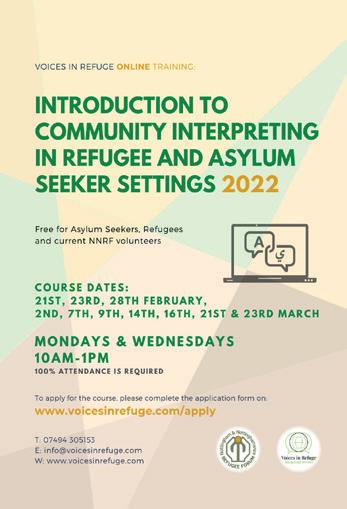
Project Successes
Over the last year the need for interpreting in organisations that NNRF refers to has increased hugely. Many of these have no access to interpreters. Our National Lottery Community Fund grant, to provide interpreting for individuals and small organisations that otherwise cannot afford it, has been extremely helpful. We have provided funded interpreters to a wide variety of organisations that simply could not do their work without an interpreter.
Our training courses continue to be hugely oversubscribed. We try to balance the needs of NNRF (speakers of specific languages who we need to volunteer) with prioritising asylum seekers and refugees who the course can help into work either now or at some point in the future when their status is different. Our training course continues to help refugees into work, preferably with NNRF but also with other organisations. One local law firm has been advising people interested in interpreting work to apply for our training before they are taken on.
Our online English classes continued throughout the year. We put in place initial sessions with interpreters to give guidelines on attending zoom sessions and where necessary put volunteers together to team-teach. This was particularly helpful when dealing with some newer volunteers who were less confident with teaching than with the technology. At the end of March we were preparing for the return of in-person classes while continuing with online classes as an option for those living further away or with childcare needs.
We continued to concentrate on career development for our staff and volunteer interpreters and were extremely proud of interpreters Kadria Fahmy, who left us to take on a role as UKRS Women’s worker at NNRF, and Fawad Mousawi who continues as an interpreter with us while working for Refugee Roots as an asylum caseworker.
Project Outcomes
Paid-for interpreting sessions for outside organisations have risen back to pre-pandemic levels. This means a vital source of funding has returned.
29
Plans and hopes for the coming year
• Next year we hope to employ Ukrainian and Pashto speakers to cover languages most required that we don’t already cover, and a female Tigrinya and Amharic speaker to cover this area of need within NNRF
• We are currently hugely oversubscribed for interpreter training course places and aim to employ some more training support
• We would like to increase ESOL coverage by recruiting and training volunteers to take on classes within their communities
Appreciation: we would like to thank…
Working at Voices in Refuge helped me to get into work after 8 years of unemployment. I was working in my home country for more than 10 years but when I arrived in the UK, I lost my confidence, and it was very difficult to apply for jobs as they always require previous experience in UK.
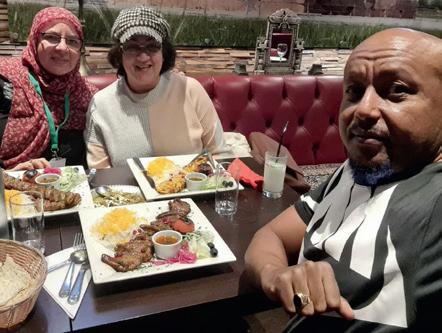

Voices in Refuge gives people a second chance. They understand how difficult and overwhelming it can be for someone to be in a completely new work environment. In addition to their friendly and supportive approach, they deliver workshops that not only produce professional interpreters but also improve their employability skills.

Working with Voices in Refuge enabled me to have the confidence and the experience to apply and successfully get a job as a Women’s Case Worker. During my 3 years working as an interpreter, I have worked with all departments across NNRF. I have been involved in every step of the resettlement of new refugees and asylum seekers in the UK.
Through interpreting, I have witnessed firsthand how support is provided to asylum seekers and refugees. From working with case workers and volunteers across the NNRF, gained vast knowledge of the asylum system and the eligibility criteria affecting asylum seekers and refugees’ access to services. I have been supporting case workers across NNRF day in day out helping women and families who are suffering from domestic abuse and mental health issues as a consequence.
Voices in Refuge gave me the experience and the skills that are essential for a Women’s Support Worker. As an interpreter, I learnt how to support families with respect, compassion and a code of conduct which demands strict confidentiality. I can confidently say that working with Voices in Refuge changed my life. I was able to go back into work. I gained so much experience and confidence that enabled me to improve my employability and work opportunities.
Kadria Fahmy, trainee, volunteer, employed interpreter and now Women’s Caseworker for NNRF UKRS programme
30
Barbara Spreiz Dhliwayo for running our training in addition to all her own NNRF work, Fiona Cameron for successful grant writing, Temi Yusuf for finance support and Jennie Fleming for support from the Board of Trustees.
“ “
Money Sorted
Project Team Members: Joshua Aspden; Hong Chi
Number of Clients served: 26 (15M, 11F)
Number of New Cases: 15
Partner organisations: St. Ann’s Advice Centre, Newstart project
Project Description
The Money Sorted project provides support and personally tailored interventions for people experiencing financial difficulties. It aims to help refugees take control of their money, build confidence and the skills needed to tackle barriers and improve their financial wellbeing.
It is part of the Building Better Opportunities programme, and is funded by the European Social Fund and The National Lottery Community Fund.
Project Successes
• 15 participants left the programme this year, having completed their Financial Resilience Action Plans. This meant they came away with a better understanding of how to address their debt and improved their basic knowledge of financial matters
• 8 of these participants are now in employment or full-time training
• There are 10 participants currently working on the programme, at various stages of their journey. 6 have been referred to ESOL courses and 6 now have a curriculum vitae (CV) and are ready to start applying for work
Project Targets/Outcomes
The project target is to take on 10 new participants per quarter (40 per year) and to improve participants’ capability and confidence to manage their finance better. Due to Covid it was difficult to sign people up at the start of the year and there were 15 new starters in 21/22.
The participants on the project have a better understanding of their income and outgoings, and their ability to budget has improved. The majority understand that employment is the best solution to their financial problems. All participants now have bank accounts, and most of them know how a bank works, how to budget, what a loan is and what a debt is.
Plans and hopes for the coming year
• In the coming year (the final year of the programme) we will continue to support participants with their financial resilience plans, including help with budgeting and debt management
• There will be a focus on helping clients understand the consequences of the current energy crisis, and how to handle their bills
• We aim to help 50% of our participants into work or training
Appreciation: we would like to thank… Colleagues at NNRF and the Money Sorted team at St Ann’s Advice Centre
31
“
Suhaib Ahmed was granted refugee status in July 2021 and is looking to bring his wife to the UK through the Family Reunion Scheme.
His only income was Universal Credit so he was very keen to get a job and start saving. He joined the Money Sorted programme to help him better organise his finances and work on an action plan to achieve his goals.
He has a degree in Civil Engineering which is recognized in the UK, so he had applied for a few electrician jobs in Nottingham. However he soon found out that most of the employers prefer people who have previous working experience.
Money Sorted signed him up to the Newstart programme, which runs courses to help people gain relevant work experience in electrical and civil engineering fields. Once the course is completed, they also provide opportunities for paid training courses, to enable continuation of their practical experience while receiving a wage.
While looking for an opportunity to gain some relevant work experience, Money Sorted helped him to obtain a Security Industry Authority (SIA) licence so that he could find work as a security guard. We provided him with a character reference,
and the programme was also able to pay for his SIA test fee.
We were also able to further improve his job prospects by helping him obtain a driving licence, which will enhance his employability and broaden his job search area. The project paid for 8 hours of driving lessons and his test fee, and he is looking to complete the test in the summer of 2022.
A Construction Skills Certification Scheme (CSCS) card is a must-have for professionals who work at construction sites. With the help of his Money Sorted Personal Navigator, Mr Ahmed is currently applying for his card, and has recently passed a Health and Safety Executive (HSE) test for Managers and Professionals, which is part of the requirements.
He also recently started work as a trainee construction engineer and quantity surveyor at a construction company.




32
“ “
Opportunity and Change
Project Leader: Zoe Kasujja
Project Team Members: Zoe Kasujja; Sarah Norris; Debbie Royle
Number of Clients served: 21 (11M, 10F)
Number of New Cases: 12
Partner organisations: This project is managed in partnership with Framework Housing Association.
Project Description
Opportunity and Change is a support programme for people with multiple and complex needs. Supported by a Personal Navigator (caseworker), participants on this programme engage with an individually tailored and holistic package of support, training and therapeutic interventions.
By increasing their self-confidence and teaching them new skills, the ultimate aim is to help these participants become socially and economically included, through access to education, training and employment.
It is part of the Building Better Opportunities programme and is funded by the European Social Fund and The National Lottery Community Fund.
Project Successes
• 9 participants were settled into permanent accommodation
• 3 participants have been attending regular counselling sessions
• 6 participants took part in the Loudspeaker arts programme at Nottingham Contemporary
• 7 participants completed the “Skills Plus for Change” training programme, aimed at helping to develop life-skills and confidence
Plans and hopes for the coming year
The Opportunity and Change programme will come to an end in March 2023, so the final 12 months of the project will be focused on helping the final participants reach their training and employment goals. This will include enrolling them onto ESOL courses and helping at least 5 into education and 3 into employment.
Appreciation: we would like to thank…
Framework Housing Association, Improving Lives, Nottingham Contemporary.
33
Sedia is a refugee who had newly arrived in Nottingham at the time of her referral to Opportunity and Change. She had recently lost her father, who she had been caring for. She had no benefits set up of her own, no other income, and had a large housing debt. She was also very depressed due to her situation and the recent loss of her father.
Her Opportunity and Change Personal Navigator immediately helped her to start a Universal Credit claim and made sure she was in receipt of the housing benefit due to her. She also started an application for a Personal Independence Payment.

Sedia had lots of health and mobility issues, and her Personal Navigator requested an assessment with the Care Act Team. She was also referred to an Occupational Therapist, which led to a review of her private accommodation. Home adaptations have now been made to make her life easier, including the installation of a rail by the front step, and equipment for the bathroom.
Her Personal Navigator arranged for her to start seeing a counsellor, offered by Improving Lives. She has been attending regularly since November. She also attended “Skills Plus for Change” sessions run by Opportunity and Change, which covers topics such as improving confidence, and managing money effectively.
She was very isolated at the time of her referral to Opportunity and Change. However she has now started to make social connections and engage with activities. She has recently been attending the Loudspeaker arts programme, based at Nottingham Contemporary art gallery. She has also been referred to English classes at Futures, which will further improve her confidence.
With her improving mental health, she is keen to get more involved in her new community, and her next plan is to look for some voluntary work.

34
Specialist Advice Team
Project Leader: Sonia Bilkhu
Project Team Members: Charlie Stubbings; Sonia Bilkhu; Nicole Shametiova; Fiona Broome

Number of Volunteers: 5 casework volunteers, 2 Social Work students on placement
Number of Clients served: 518: (365M, 153F)
Number of New Cases: 381
Partner organisations
The team continues to develop partnerships with both local and national organisations and services. To mention a couple, our staff are members of national networks such as the Asylum Support Advice Network (ASAN) and the Housing and Immigration Group (HIG) and local ones, such as the Nottingham Homelessness Voluntary Sector Forum. This gives us an opportunity to share experience and best practice, keep up to date with changes in the asylum system, access training opportunities and receive news and updates from the sector.
We actively reach out to other service providers. Last year, we welcomed project workers from Double T, East Midland Homes Co-operative (EMHC) and Nottingham Night Stop in our team meetings.
The strong links we have established with partner organisations enable us to better advocate for our clients. For example, we can escalate cases better due to named contacts in certain organisations including the Department for Work and Pensions (DWP), Migrant Help, SERCO, Housing Aid (NCC).
Project Description
The Specialist Advice Team (SAT) provides specialist advice and support to asylum seekers and refugees through complex casework. Our main areas of work are:
• resettlement support for newly recognised refugees
• post family reunion support
• welfare rights and benefits
• homelessness and housing
• complex asylum support issues
• access to health and social care
• access to education and employment
• support for families with no recourse to public funds
• support for survivors of domestic or racial abuse
• support for LGBTQ+
Project Successes
• 136 clients received resettlement support following a positive decision on their asylum applications
• We helped 305 clients secure suitable accommodation and set up their homes. This is 69% above the targets set by our funder
• 219 refugees were able to meet their basic financial needs through accessing the correct benefits. This is 37% above the target
• We helped 23 families settle in Nottingham following refugee family reunion
• 100% success rate in appealing asylum support refusals and discontinuations
• We were able to successfully combine face-to-face appointments with remote working based on clients’ needs
• We succeeded in establishing new connections with a variety of local and regional service providers which increases support options for our clients, ensures continuation of support and enables us to advocate for clients more effectively
Project Targets/Outcomes
160 individuals (40 per quarter) assisted with housing (are no longer homeless / threatened with homelessness). 64% above target: 263 clients assisted. Over half, 56%, of the referrals we receive are related to homelessness or help with securing suitable accommodation.
160 individuals (40 per quarter) assisted with benefits (no longer destitute). 63% above target: 219 clients assisted with benefits. 38% of cases are to do with benefit enquiries or destitution.
20 (5 per quarter) assisted with setting up a home (furniture, setting up bills). 110% above target: 42 clients assisted with setting up a home. Around 7% of clients approach our services for help with setting
35
up a home, these are people moving into social housing or privately rented accommodation.
120 (30 per quarter) individuals given information on the labour market. 80% below target: 24 clients assisted. Around 4% of clients approach us for assistance with employability. We believe that the number is quite low compared to the other figures because clients are given some level of support by the Job Centre, where they have a named Work Coach. Newly recognised refugees, transitioning from asylum support to the mainstream system, are not usually in a position to look for work straight away due to immediate homelessness and destitution. They will usually start looking for work later in the process.
40 individuals (10 per quarter) able to improve their communication in English. 30% below target: 28 clients referred to ESOL. Around 5% of refugees require help with signing up for ESOL classes. This is quite low, due to most clients already being signed up for ESOL classes via General Advice when they are still asylum seekers.
Plans and hopes for the coming year
• Expand the volunteer team in the project to build skills and capacity
• Strengthen partnerships with agencies and establish new links
• Develop integration workshops and resources for clients to equip them with knowledge and skills to understand the system and choices available to them to effectively rebuild their lives in the UK. This will also be useful for asylum seekers who gain refugee status to understand refugee rights and entitlements
Appreciation: we would like to thank…
All the SAT caseworkers who work tirelessly in a pressured environment which is at the same time very emotionally demanding.
All the volunteers who dedicated their time and energy to work with us this year. All our partner organisations - too many to list!
I supported a woman with 3 children who had been granted Discretionary Leave (DL) with No Recourse to Public Funds (NRPF). Her partner was a UK Citizen and had been supporting the family. Unfortunately, the relationship ended and he moved out. He continued to provide basic support for the children but not the client. She was relying on handouts from church and friends. Her financial and immigration status made her particularly vulnerable to exploitation. For immediate destitution relief I referred the client to St Ann’s Advice Centre for a weekly food parcel and arranged for a Small Grant of £30 per person per week, funded by the British Red Cross, which was payable for 12
weeks. When this ended, I referred the client to alternative British Red Cross funding which supported people with NRPF. To support with the broader issue of the client’s immigration status restrictions, I made a referral to Nottingham Law Centre to help her apply for the NRPF restriction to be removed. This was granted and a new Biometric Residence Permit (BRP) card was issued, allowing the client to access public funds. I then helped her to apply for Universal Credit and Child Benefit and she is now able to sustain herself and her children.
Broome, SAT Caseworker
‘I have no words to thank you for the support and kindness you all showed helping me out. I will always remember you in my prayers. God bless you all.’ Imran, SAT client
A thousand thanks wouldn’t be enough!’ Omar, SAT client
‘What I enjoyed most about volunteering in SAT was the ability to take ownership of a case, provide advice to people and see how that advice leads to a positive outcome in people’s lives.’ Abdulrasheed, SAT volunteer



36
Fiona
“ “
UK Resettlement Scheme (UKRS)
Project Leader: Siobhan Gosrani
Project Team Members: Adel Hamad; Caitlin Sorrell; Kadria Fahmy; Jane Oakley; Alex Winter; Julie Whitehead; Richard Martin; Sherene Bingham; Sophie Scott
Number of Volunteers: 2
Number of Clients served: 76 families (315 individuals)
Number of New Cases: 13 families (49 individuals)
Project Description
The UK government launched the UK Resettlement Scheme (UKRS) in 2021 as a continuation of the Vulnerable Persons Resettlement Scheme (VPRS), but the criteria were expanded to accept vulnerable refugees globally, not limited to those affected by the Syrian conflict.
Resettled individuals and families have been identified by the United Nations High Commissioner for Refugees (UNHCR), based on criteria including serious medical conditions, survivors of torture and violence, and women and children at risk. Those arriving on this scheme receive the same long-term support from the Nottingham and Nottinghamshire Refugee Forum (NNRF) as those who previously arrived on the VPRS between 2015 – 2021.
NNRF has worked in partnership with Nottingham City and Nottinghamshire County Councils since the expansion of the VPRS in 2015, to provide specialist support to newly arrived refugee families. The team at NNRF work with families from their arrival in the UK for a period of five years. When they first arrive, families receive intensive support from caseworkers, ensuring that they have access to benefits, healthcare, housing and education.
As they continue to settle into the community, we support their integration through learning English, developing their skills to support employability and nurturing their individual goals and passions. The overall aim is to empower families to become independent and to integrate into the UK.
The clients we support are predominantly Syrian, but we also support clients from Iraq, Kurdistan, Somalia and Sudan. We envisage that we will support other nationalities as the UKRS progresses.
Project Successes
• We are currently providing intensive casework to 40 families. The remaining families receive drop-in support from the UKRS Advice Worker to help them towards self-sufficiency
• The Employability Team have developed a 12-hour guided learning Employability and Life Skills programme in partnership with Nottingham College and the Department for Work and Pensions (DWP). This is supporting clients with their integration and induction into life in the UK
• 10 clients are currently employed in paid and voluntary work
• 6 clients have progressed to further education
• 31 clients are regularly attending English for Speakers of Other Languages (ESOL) classes to improve their English language skills
Project Targets/Outcomes
There are 20 outcomes in the Service Level Agreement (SLA) that are not target-driven but are based on ongoing intervention and integration over five years from a family’s arrival. These include:
• Welcoming families at the airport and transporting them to their accommodation
• Helping families to settle in, tenancy paperwork, health and safety, utilities etc.
• Ensure critical registrations are done, e.g. bank account, Biometric Residence Permits (BRPs), benefits, GP, dentist, schools
• Assist with orientation in Nottingham as well as cultural life skills orientation to support families to become familiar with life in the UK as soon as possible
• Monitor families’ integration using a red-amber-green risk system to ensure any concerns are reviewed as a team
37
• Continuously support families through a tiered level of support for five years to help them towards independence and self-sufficiency
• Integration planning by looking at the family holistically, e.g. employment, education, training, volunteering, aspirations
• Work closely with schools to support children’s integration and educational needs
• Exit planning for when clients will be leaving the scheme
• Advice and signposting to specialist support organisations
• Encouraging 12 hours minimum of ESOL per week

• Providing interpreting services for non-Arabic speaking staff to work with clients
• Safeguarding concerns escalated appropriately
• Support with Indefinite Leave to Remain (ILR) applications
Plans and hopes for the coming year
• Receive more families on the UKRS now that flights have resumed and Covid travelling restrictions to the UK have been lifted
• Additional integration initiatives for new arrivals to assist with their resettlement
Appreciation: we would like to thank…
• All voluntary befrienders to our clients in Nottingham and Newark
• Department for Work and Pensions (DWP) contacts in Nottingham and Newark, including Ian Brooks and Monica Bryce
• Mirela Kinaeva (legal volunteer)

• Natalie Hawker (Employability volunteer)
• Nottingham City and Nottinghamshire County Councils
• Language Justice and the Arabic speaking interpreters
• Zeenat Karim, OISC level 3 solicitor
The UKRS Women’s Worker supported Yasmin, a single mum aged 18 who arrived in the UK with her young daughter. She had endured awfully traumatic experiences before fleeing to the UK. Yasmin arrived overwhelmed, scared and isolated, unable to speak English and lacking self-confidence. She had severe mental health issues but was scared to tell anyone apart from her mum in her home country, who advised her to keep it to herself because of the stigma around mental health in her community. Yasmin also struggled to manage financially and accumulated debts - compounding her mental health problems - and she was unable to support her daughter properly at school.
The Women’s Worker spent time with Yasmin’s daughter building her trust and making her feel well-supported. Having gained her trust, she was able to support Yasmin in managing her budget, clearing her debts, communicating with her daughter’s school and making sure that all her daughter’s needs were met. Eventually Yasmin opened
up about her mental health and asked for help. The Women’s Worker referred her to Let’s Talk Wellbeing for specialist support and she is progressing well.
The Women’s Worker also encouraged Yasmin to engage with different communities due to the stigma in her own community because she is unmarried with a young daughter. Now she has a positive outlook on life, her mental health has improved, she has no debts, and her daughter is doing well at school. As a result of her increased confidence, she is looking for work, her English has improved, and she has made social connections to combat her isolation.
Yasmin used to call the Women’s Worker most days. Now, the Women’s Worker calls her only once a week to check her wellbeing. The family are in a much better place and Yasmin says she is “…all good, I am happy, I meet friends in the weekends, and trying to look for work that allow me to keep attending my college classes and do the school run.”
38
“ “
Volunteering
Project Leader: Barbara Spreiz Dhliwayo
Number of Volunteers: 222 (50 asylum seekers/refugees – 22.5%)
Number of New Volunteers: 92
Project Description
Volunteering at Nottingham and Nottinghamshire Refugee Forum (NNRF) is an opportunity to make a positive impact on the lives of asylum seekers and refugees in Nottingham. Our team of volunteers offer a warm welcome and support to those seeking safety in our city. We particularly encourage our clients to volunteer in order to gain experience, increase their social networks, improve their communication skills, and increase their confidence. We are immensely proud of our diverse, talented and committed team of volunteers - the heart and soul of NNRF!
Project Successes
We offered 37 training sessions and 3 interpreting courses; 243 volunteers and COI partners attended. Particular emphasis was put on safeguarding – over 100 volunteers have improved their understanding of safeguarding and are more aware of their responsibilities. Our team of volunteers has a diverse range of skills, talents and backgrounds. 41 languages are spoken by volunteers from 48 different countries across 6 continents. A snapshot of the volunteering team at the end of the financial year showed that NNRF benefits from about 500 hours of volunteering each week, or 26,000 hours per year – equivalent to 13.5 full time staff.
In early 2022, we started the re-accreditation process for Investing in Volunteers, the quality standard in volunteer management, which we expect to obtain before the end of the year.
Plans and hopes for the coming year
• Achieving the Investing in Volunteers quality mark (again!)
• Improving training, development and participation opportunities for volunteers
• Celebrating and thanking volunteers more frequently than we did during the pandemic
A long-term volunteer made use of the safeguarding training opportunity to (confidentially) highlight examples they have had to deal with in the course of their volunteering. Through group discussion and guidance from the trainer, they understood what they could have done differently, and clarified their understanding of their safeguarding responsibilities. This proved to be very useful when they demonstrated their knowledge of safeguarding in a successful job interview!

39
“I enjoyed the interaction with the service users who genuinely seemed to appreciate someone listening to their concerns and caring about their situation. It felt like I was making a genuine difference or at least part of the process which would do so.”
“I’m still a relatively new volunteer, but I’ve certainly found volunteering at the NNRF incredibly rewarding! Everyone has been amazingly supportive, and my first experience of working remotely last week was a real eye opener about the incredible challenge you’ve all overcome to keep the Forum going during the lockdowns.”
The top 3 things that make volunteering at NNRF attractive, according to one of our volunteers, are:
1. A dedication to helping people who have experienced the hostile environment and often continue to experience difficulties in their host country.
2. A willingness to work together.
3. Being allowed to have a degree of independence and initiative taking, whilst benefiting from the support of the organisation and its staff. This is particularly attractive for volunteers since it allows a balance of individual resourcefulness together with the support of knowledgeable and understanding supervisors. “
Appreciation: we would like to thank…
Volunteers – for their passion, commitment, patience and collaboration. Dave Hewitt – for support, advice and good communication with prospective volunteers. Staff members who look after our volunteers on a daily basis, making it a rewarding experience.
Nottingham Community and Voluntary Service (NCVS), Nottingham Trent University and The University of Nottingham for being great sources of brilliant volunteers and promoting volunteering across Nottingham.

40
“
Youth
Project Leader: Gary Lockhart
Project Team Members: Gary Lockhart (Youth Caseworker) Valeria Aquino (Youth Activities worker)
Number of Volunteers: 4
Number of Clients served: 82
Number of New Cases: 25
Project Description
The Youth Project supports young asylum seekers aged 13-21. Our aim, by running a weekly youth club and other activities, is to help young people grow friendships and support networks, gain confidence with English, and develop a fulfilled life in the UK. This in turn helps young people navigate a complicated asylum system that often has a negative impact on their emotional well-being.
The club initially ran from 5-8 pm and included food, group activities, and games. Each week, young people would be able to meet friends and socialise over food, pool, table tennis, then everyone would be brought together for a big activity to make it easier for new members to integrate. The volunteers provided specialist advice and the opportunity for young people to chat one-on-one about any issues they were struggling with. This support was beneficial to young people new to the city.
Project Successes
• Since the beginning of March 2022, attendance at the youth club has increased steadily
• Notts County Foundation has agreed to fund 2 months’ free gym membership at the Portland Centre
• 13 young people attended our first group visit to the cinema
• Valeria has been managing the youth group bookings with the Mansfield Road Methodist Church Manager, Andrea
• She has implemented upgrading of equipment and ensuring food and snacks are available
• Valeria has also organised all the events held at the youth club as well as managing the funds appropriately, to meet the needs of the children
• Events organised so far this year have been enjoyed and well attended
Project Targets/Outcomes
Increase attendance (pre-lockdown): restarting the connection with foster care and college networks helped us to establish contact with new groups of people
Provide workshops to improve young people’s safety, emotional wellbeing, and employability: we are planning sessions about phone safety, creative workshops, and maths and English if support is requested
Improve one to one casework and orientation: a youth caseworker has been in place since December 2021. Since then, it has been possible to follow up and resolve any issues or needs of the young people
Create feedback questionnaire for consultation around possible activities young people would like to see: it is important to know what activities young people would like to do during the year. Creating a space where they can choose what to do will contribute to improving their confidence and self-esteem

41
Plans and hopes for the coming year
Implement a new client feedback, comments, and suggestion form. Plan specific events for females only.
Ensure that young people understand what support can be offered and become empowered to participate and lead.
“Thank you Youth clubs is very good and give us opportunity to learn new things, as well they do different kind of activities as which is helpful thank you so much”
Youth club client
“Meeting with the youth club was a pleasant time for me. We had a lot of fun and we met with such a lovely people in there. We played games like basketball, bowling which was incredible. It is good opportunity for people like as to relax, to build confidence and to learn new things. You guys are doing best job keep it.”
Youth club client
• Nottingham
Appreciation: we would like to thank…
(NEST)
• Sandy Redgate, Clinical Specialist Nurse, Child and Adolescent Mental Health Services (CAMHS)
• Helen Lambert, Operations Manager, YMCA Greater Nottingham Unaccompanied AsylumSeeking Children (UASC) Project
• Laura Nellums, Assistant Professor in Global Health, University of Nottingham
• Lauren Cotton, Sports Inclusion Manager, Notts County Foundation
• Tessa Hannigan, Employability Support Worker, BELONG
• Jane Byrd, Nottingham City of Sanctuary
• Andrea Dowdie, Mansfield Road Baptist Church
• Ellie Winfield, St. Nic’s Church


42
Education Sanctuary Team
– Jude Clark (Head Teacher) Beth Hilditch (School counsellor) Charlotte Datjis (Admin Manager)
“ “
Belong Nottingham is a charity which supports migrants, refugees and asylum seekers to achieve their full potential. We offer free and confidential advice to anyone, to support our clients through integration into UK society and into their local communities.

Originally founded as an African Refugee Community Organisation established by refugees for refugees, we are now proud to support migrants from all backgrounds and from a large number of countries as diverse as from South America to East Asia. Our main aim is to empower migrants to achieve their full potential and to be economically active and socially included.
Belong Nottingham has a very good, two way relationship with the Refugee Forum.We receive referrals from them for people who need integration support, for example for clients who are being housed in hotels and who are struggling to interact socially. We refer clients to the Refugee Forum who need more specialist support than we are able to offer. That relationship is invaluable. As part of the Communities of Identity consortium, we also receive vital funding, for which we are extremely grateful and which ensures that we can carry on with the services which we offer.
We believe in community and cooperation and we have a multi-cultural staff which is reflective of the community that we work in. Our background and experience help us to understand the needs of the people that we work with and to plan our service accordingly.
We offer advice in the following areas:
• Employability: CV writing, careers advice, volunteer experience, job searches, interview techniques
• Education: ESOL classes (English for Speakers of Other Languages), IT skills, integration training, social enterprise training
• Youth: Support with integration, academic and social development, dealing with peer and family expectations
• Health: Improving confidence in accessing health services, promoting a healthy lifestyle
• Housing: Liaising between migrants and charities that help with accessing accommodation
• All our services are free of charge. Please visit our website at www.belongnottingham. co.uk or call our offices on 0115 9790015 to discuss how we can help you.
43 PARTNER ORGANISATIONS
Bhatia Best Solicitors provide specialist legal advice in both public law and community care to ensure the rights are protected of those without support or accommodation to which they are entitled. We hold contracts with the Legal Aid Agency to provide these services such that advice and assistance can often be provided at no charge (subject to an assessment of means).

We have a dedicated, growing, team of experienced solicitors and support staff to meet the needs of clients. The team is headed by Scott Laing, partner and solicitor with over 10 years’ experience in the field and has seen considerable growth to meet the increased demand for our services. Legal challenges are regularly instigated on an urgent basis including, where necessary, applications for interim relief in the High Court. We regularly issue proceedings against the Home Office, Local Authorities and Government Departments and over the past year have assisted hundreds of individuals in legal challenges such as inadequate support levels being provided, a lack of suitable or appropriate accommodation and challenges protecting the rights of children and unaccompanied asylum seeking minors, including those whose age is disputed, with a great deal of success.
The work of NNRF is essential in ensuring we are able to effectively deal with matters and their team of caseworkers assist in corresponding with third party organisations to progress a case. NNRF are a pleasure to work with and it is through such collaborative working that wider issues have been identified benefitting asylum seekers and vulnerable individuals across the country.
Hope into Action has over 100 houses throughout the country, 10 of which are in Nottingham. We provide supported accommodation for up to 2 years, and work with individuals and families to get to a point where they can live independently, managing their tenancy, budgeting, and sometimes moving into work.
Every house is opened in partnership with a church, who provide friendship and where needed, support to attend appointments, get to know the local area and find community. In Nottingham three of our 10 houses currently house refugees, one for young men and two for families. We are pleased to have taken a number of referrals from NNRF over the past few years and have a good relationship with the caseworkers, informing them when a vacancy becomes available and keeping them updated on the progress of any referrals. We really appreciate all NNRF do and are proud to partner with them.

44
PARTNER ORGANISATIONS
• Across Borders
• African Institute for Social Development

• Asylum Support Advice Network (ASAN)
• Asylum Support Appeals Project (ASAP)
• Begin
• Belong
• Bhatia Best Solicitors
• British Red Cross
• Cameroon Support Group
• Care4Calais

• City Arts
• Department for Work and Pensions (DWP)
• Djanogly City Academy – Saturday Activity Club

• Double T
• Early Intervention in Psychosis Team
• East African Education Centre

• East Midland Homes Co-operative (EMHC)

• East Midlands Strategic Migrant Partnership (EMSMP)
• Emmanuel House
• Enable
• equipped2succeed
• First Universal Enterprises Limited (FUEL)
• Framework Housing Association
• Futures
• Groundwork
• Hallam
• Halliday Reeves
• Hope for Justice
• Hope into Action
• Hope Nottingham
• Host Nottingham
• Housing Aid (NCC)
• Housing and Immigration Group (HIG)
• Humans for Rights Network
• Ignite Futures (Ignite!)
• Mansfield Road Baptist Church
• Migrant Help
• Mojatu Foundation
• NHS vaccination centres
• Newstart Project
• NHS Nottingham and Nottinghamshire Clinical Commissioning Group (CCG)
• Nottingham Arimathea Trust (NAT)
• Nottingham & Nottinghamshire Keep Our NHS Public
• Nottingham Bikeworks
• Nottingham City Council (NCC)
• Nottingham City Council Community Cohesion Team
• Nottingham City of Sanctuary
• Nottingham College
• Nottingham Community and Voluntary Service (NCVS)
• Nottingham Contemporary

• Nottingham Education Sanctuary Team (NEST)
• Nottingham Health and Education Support (NHES) befrienders
• Nottingham Homelessness Voluntary Sector Forum
• Nottingham Law Centre
• Nottingham Night Stop

• Nottingham Playhouse
• Nottingham Probation Service
• Nottingham Recovery Network
• Nottingham Refugee Week
• Nottingham Trent University Enterprise
• Nottingham Trent University
• Nottingham University Hospitals Obstetrics and Gynaecology Department
• Nottingham University Hospitals Specialist Midwifery Team
• Nottinghamshire Child and Adolescent Mental Health Services (CAMHS)
• Nottingham Community Foundation


• Nottinghamshire County Council
• Nottinghamshire County Cricket Club
• Notts County Foundation

• Office of the Immigration Services Commissioner (OISC)
• Patients Not Passports
• Public Health Nottingham City
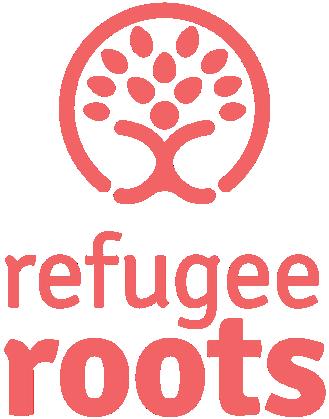
• Refugee Action
• Refugee Roots
• Senior Support Group
• SERCO
• SFiCE Foundation
• Sharewear Nottingham
• St Ann’s Advice Centre
• St. Ann’s Advice Centre Money Sorted Team

• St. Nicholas Church (St. Nic’s)
• Street Outreach Team
• Sustrans
• The Arches
• The Furniture Project Nottinghamshire
• The Salvation Army Nottingham
• Trent Vineyard Church
• University of Nottingham
• Vanclaron CiC
• Language Justice
• YMCA Greater Nottingham
45
MEMBERSHIP
Our members comprise our volunteers, our staff and donors who make regular contributions to Nottingham and Nottinghamshire Refugee Forum (NNRF), either through our website or by setting up a monthly standing order with our bank. Membership entitles someone to attend the Annual General Meeting, vote for trustees, stand for a board position and to receive a monthly newsletter. Without all 3 of these groups NNRF would not be able to function.
At 31 March 2022 we had 130 volunteers. The contribution of the volunteers in supporting NNRF is summarised in the volunteering section of this report.

At 31 March 2022 we employed 41 staff of which 17 were full time and 24 part time. A full list of staff who worked at NNRF in 2021/22 is included in the Staff Members section of this report.
In 2021/22 our ability to hold fundraising events was still restricted because of Covid. We did, though, manage to raise circa £15k from specific appeals and from a number of supporters running the Robin Hood Half Marathon. At 31 March 2022, 139 people regularly donate either through direct bank transfer or through setting up a regular payment on our website. These donors fulfil the membership criteria contributing £32k to income in total.

Following a targeted campaign in the summer of 2021 we’ve significantly increased the number of people setting up regular donations on our website. Over 50 donors have set up payment plans in the last 2 years. We are currently reviewing both the membership criteria and the benefits offered to see if the existing criteria are still appropriate. We’d like to thank everyone who contributed financially to NNRF last year as without these funds we would not be able to offer the services we do and any donations however small are much appreciated in these challenging economic times.
The total income raised from donations, fundraising and legacies was £112k of which £100k was unrestricted funding. This was £13k higher than the sums raised in
NNRF Board of Trustees
The work of NNRF is overseen by the Board of Trustees whose role is to supervise the running of the organisation, set and review strategic direction, ensure we follow our legal obligations and pursue a sound and stable financial policy. Currently there are 12 members of the Board.
All trustees are volunteers and come from a variety of backgrounds so each has different areas of knowledge and skills, for example leadership, project management, strategy development, safeguarding, Human Resources, Health and Safety, finance, understanding of issues facing asylum seekers and refugees, organisational skills, bid writing and grant applications. The Board undertakes a Skills Audit and Self-Assessment of Performance annually to ensure we are working to the best of our ability and identify any gaps or issues that need addressing.
We are committed to increasing the diversity of Board membership, particularly welcoming those who have lived experience, and the number of women among the trustees.
The full Board meets every month and alternates between business meetings - discussing the work of our various projects, reviewing reports etc. and strategic meetings - which discuss and decide issues related to the future work of NNRF, or having training on matters such as safeguarding and financial resilience.
There are 6 sub-committees whose roles are to support the different aspects of NNRF’s work. The sub-committees meet monthly and each produces a report to the monthly trustees’ meetings for information or discussion. Each sub-committee has a mixture of trustees, volunteers and staff and has clearly defined responsibilities, see below:
• Finance deals with matters such as income, expenditure, budgeting and budget forecasting to ensure the Board is kept fully informed of our financial position and, in particular, is aware of any potential shortfalls in order to look at alternatives
• Fundraising has the responsibility of raising unrestricted funds, those that are not tied to a particular project and can, therefore, be spent wherever the organisation desires
• Grants’ role is to search for, investigate the suitability of, and apply for funding to allow our existing projects to continue along with any new projects or priorities that may be proposed
• Human Resources ensures the organisation operates within employment law and follows best practice for the benefit of all the Forum’s employees and the work of the organisation
• Health and Safety’s purpose is to ensure that NNRF abides by H&S legislation and good practice and provides a safe environment for staff and all who visit the centre
• Safeguarding’s remit is to ensure the organisation creates and maintains a safe environment for children and adults and actively promotes their well-being in our service delivery
Throughout the year there are also working groups set up to consider specific issues and report back to the full Board, e.g. reviewing policies, governance issues.
NNRF BOARD RISK STATEMENT
The Board recognises its responsibility to identify, assess and manage any risks linked to the achievement of NNRF’s objectives. The Board and its sub-committees have developed a register of the risks that could face the work and safe operation of NNRF. This register:
• Identifies risks
• Assesses risks in terms of their likelihood and impact
• Sets out actions to be taken to reduce the risk where possible
The Risk Register covers the range of risks that the organisation might affect, including financial, governance, operational, external, regulation and reputational risks.
Sub-committees are responsible for some sections of the risk register and consider risk at each sub-committee meeting. The risk register is formally reviewed at the full Board meeting twice a year in June and December. It is updated as necessary with regard to the likelihood of the risk, its possible impact and mitigating actions. However, risk management is on-going and sub-committees can also bring changes to the risk register to any Board meeting if necessary.
The main risks faced by the organisation at present are considered to be staff well-being and burn out, financial security and government policy affecting asylum seekers.
Conflicts of Interest
New trustees are asked to set out their interests in accordance with Charity Commission guidance (Conflicts of interest: a guide for charity trustees (CC29)) by completing a declaration of interests form. All trustees are required to recomplete this form on an annual basis. Trustees are also asked, at each meeting of the Board of Trustees, to declare any new interests
If you are interested in joining the Board, please contact chair@nottsrefugeeforum.org.uk
47
NNRF Board of Trustees
Name Roles Dates
David Hewitt a long term volunteer in a variety of roles during that time
Jennie Fleming has been a Trustee since November 2018
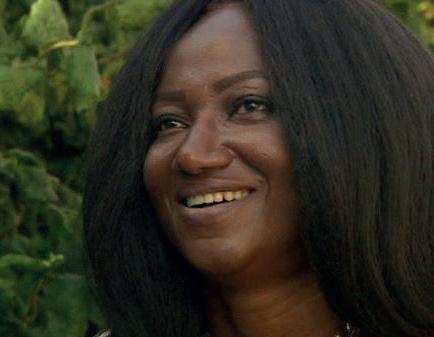
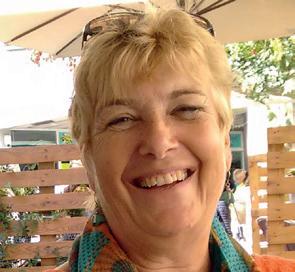
Helen O'Nions is an academic at Nottingham Law School and since November 2021 has been vice chair of the Board of Trustees

Chair of Fundraising Committee
Resigned November 2021 Elizabeth Pritchett Grants Committee member Resigned November 2021
Chair of Board of Trustees; Finance Committee member; Human resources (HR) Committee member
Vice chair of Board of Trustees, member of HR committee
Elected at AGM 27 November 2019
Elected at AGM 25 November 2021
Treasurer; Chair of Finance Committee Elected at AGM 27 November 2019 Edith Iheama
David Sadler is a retired accountant with some experience of the voluntary sector
Chair of Health & Safety Committee Elected at AGM 26 November 2020

Amdani Juma Re elected at AGM 26 November 2020
Councillor AJ Matsiko Co opted 9 March 2020
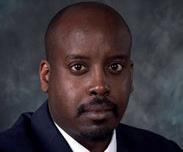
Carol Mombeyarara is an accounting professional with lived experience and is passionate about helping people in need to advance their lives and influencing strategic business decisions.
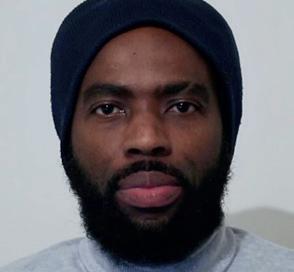
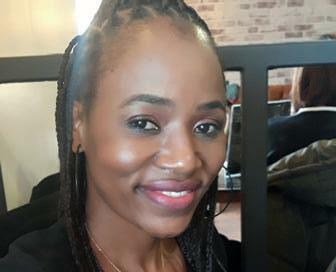
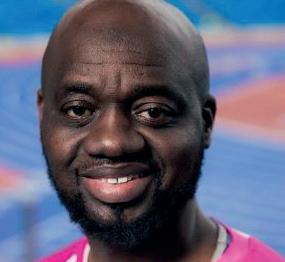
Stella Nickolay is a longstanding NNRF member and volunteer and has been a Trustee since November 2018
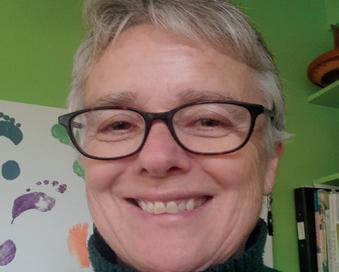

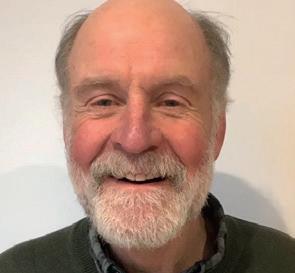
Allan Njanji
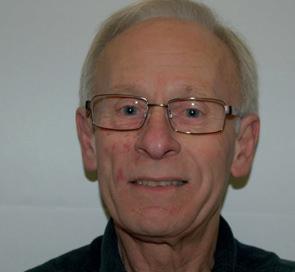
Pete Strauss is a retired Primary School Headteacher and a volunteer with the General Advice team
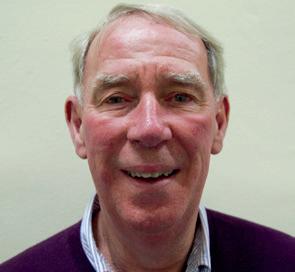
Roger Tanner brings to NNRF his experience of managing secondary schools in the Nottingham area as well as being an active trade unionist and regular volunteer at the Forum.
Darren York lives in Nottingham and is Chief Executive of The Conservation Volunteers
Finance Committee member Elected at AGM 26 November 2020
Chair of Grants Committee; HR Committee member Re elected at AGM 25 November 2021
Lead of Equalities, Diversity and Inclusion working group
Elected at AGM 27 November 2019
Trustee with Safeguarding Responsibility Elected at AGM 27 November 2019
Chair of HR Committee
Re elected at AGM 25 November 2021
Lead of Governance Working group
Elected at AGM 26 November 2020
48
Dave Hewitt
Carol Mombeyarara
David Sadler
Helen O’nions
Allan Njanji
Darren York
Amdani Juma
Roger Tanner
Jennie Fleming
Stella Nickolay
Cllr AJ Matsiko
Edith Iheama
Pete Strauss
FINANCIAL REVIEW
The year to 31 March 2022 represented a major challenge as we started the recovery from Covid. Our services were a hybrid of remote services and the reintroduction of face-to-face support. We received an additional £60k of grants to help with Covid-related issues.
In the year to 31 March 2022 we made a surplus of £11.5k. Our unrestricted reserves fell by £7k to £216k but still sufficient to meet NNRF’s reserve policy. The main reason for the drop in unrestricted reserves was that the income we earned on the United Kingdom Resettlement (UKRS) project declined as fewer refugees came through the scheme because of Covid.
In 2021/22 turnover from Charitable Activities dropped by £40k to £896k. Covid-support grants accounted for around £200k of turnover in 2020/21 and this fell to £60k in 2021/22. This loss in income was partly compensated by us implementing and managing the new resettlement contract for Afghan refugees.
This contract generated £60k of revenue in 2021/22. Other new grant funders included £25k from Garfield Weston and £50k over 2 years from Lloyds Bank Charitable Trust to support our core costs, £80k over 2 years and £30k over 3 years from Children In Need to support our Children and Families and Youth projects respectively and £135k over 3 years from Refugee Action for a new project called Explore, Adapt and Renew.
Income from donations and legacies grew by £28k last year. £10k of the increase was a oneoff legacy donation with the rest arising from a successful campaign to encourage more supporters to donate to us through a monthly direct debit. We also noticed a significant increase in one-off donations around the time of Operation PITTING in Afghanistan.
This increase was partly offset though by a £14k drop-off in fundraising income. It was still difficult to organise events in 2021/22 because of the uncertainties around Covid, whereas in 2020/21 we benefitted significantly from a oneoff campaign specifically to help asylum seekers and refugees through the Covid period.
Our Christmas fundraising campaign was based around supporting our destitute clients. This campaign raised nearly £10k, which was an
excellent response, but we didn’t receive as many large one-off donations as in 2020/21.
The Forum’s CIC Language Justice primary task is to provide interpreters to the Forum but also generates additional revenue by supplying interpreters to Nottingham City Council and other 3rd party entities. This revenue grew by £3k to £17.6k in 2021/22.
Staff costs increased by £96k (13%) in 2021/22. £33k of the increase was a one-off honorarium paid to all staff at Christmas to recognise the work done during Covid and in lieu of a pay scale review that was not able to be completed because of a number of factors. £52k of the increase is for staffing required to run the Afghan Resettlement contracts with the rest coming from staff recruited during 2020/21 working a full year in 2021/22. Other costs fell by £77k because of one-off Covid-financed expenditure in 2020/21 and a Covid-driven contract provision no longer required.
Turning to the consolidated balance sheet, the only capital addition is for a new cooker. Accrued income contains a £49k provision for additional income due on the UK resettlement contract with Nottingham City Council.
The Forum is paid quarterly based on an estimated number of refugees arriving in the UK each year under this scheme. In 2021/22 the actual number of refugees arriving in Nottingham was significantly in excess of the estimate so we are due an additional payment. Consolidated bank balances remain healthy at £642k, falling £47k in the year.
The only other significant working capital balance is deferred revenue of £374k. £153k relates to excess revenue earned on the UKRS contract. The deferred revenue is being used to fund the Deputy Director post at £40k per annum and to ensure services can be maintained if the number of refugees entering under the scheme drop below break-even.
For example during Covid in 2020/21 no UKRS refugees arrived in Nottingham because of the travel restrictions. The rest of the deferred revenue represents when the grant period is not consistent with our accounting periods. This will all be used in 2022/23.
49
Unrestricted funds
Restricted funds Total funds Total funds 2022 2022 2022 2021 £ £ £ £
Income from: Income from donations and legacies 82,491 15,182 97,673 69,759 Income from charitable activities 150,804 745,291 896,095 935,530 Income from other trading activities 32,204 32,204 43,521 Income from investments 77 77 166
Total Income 265,576 760,473 1,026,049 1,048,976
Expenditure on: Charitable activities 260,685 747,891 1,008,576 994,454 Other trading activities 5,935 5,935 4,088 Total expenditure 266,620 747,891 1,014,511 998,542 Net income/(expenditure) (1,044) 12,582 11,538 50,434 Transfers between funds (5,965) 5,965 Tax on activities (285) (285) (1065) Net movement in funds (7,294) 18,547 11,253 49,369
50
STATEMENT OF FINANCIAL ACTIVITIES FOR THE
ENDED
Fund balances at 1 April 2021 223,095 117,505 340,600 291,231 Fund balances at 31 March 2022 215,801 136,052 351,853 340,600 CONSOLIDATED
YEAR
31 MARCH 2022
51 2022 2022 2021 2021 £ £ £ £
assets Tangible assets
Current assets Debtors
Cash at bank and in hand
Creditors: amounts falling due within one year
Net current assets
Total assets less current liabilities
Income funds Restricted funds
Unrestricted funds
Total consolidated funds 351,853
CONSOLIDATED BALANCE SHEET AS AT 31 MARCH 2022
Fixed
2,316 1,483
104,600 38,911
642,104 689,351 746,704 728,262
(397,167) (389,145)
349,537 339,117
351,853 340,600
136,052 117,505
215,801 223,095
340,600
2022 2022 2021 2021 £ £ £ £
Cash flows from operating activities
Cash generated from/(absorbed by) operations (44,693) 184,144 Corporation tax (285) (1,065)
Net cash inflow/(outflow) from operating activities (44,978) 183,079
Investing activities
52
and cash equivalents at
and cash equivalents at
STATEMENT OF CASH FLOWS FOR THE YEAR ENDED 31 MARCH
Purchase of tangible fixed assets (2,346) Interest received 77 166 Net cash generated from/(used in) investing activities (2,269) 166 Net increase/(decrease) in cash and cash equivalents (47,247) 183,245 Cash
beginning of year 689,351 506,106 Cash
end of year 642,104 689,351 CONSOLIDATED
2022
Fundraising
The Covid pandemic continued to restrict our in-person activities at NNRF and in the community. Nevertheless, we have run a couple of online appeals, participated at the Robin Hood Half Marathon as charity partners, and gratefully received support from individuals and groups who donated money to support our work. Below are some of the fundraising highlights of 2021/22:
Refugee Week Appeal, Online, June/July 2021
Online appeal launched for 2021 Refugee Week, highlighting our work over the past year. A total of £1,049.75 (including Gift Aid) was raised.
Robin Hood Half-Marathon, Victoria Embankment, 26 September 2021

We had 17 runners signed up, many of whom were new to us, and several came to our stall to say hello before the race. In addition, our cheerleading team at the 1-mile and 13-mile marks valiantly made lots of noise of encouragement as each of our runners went by. Here is what one of our runners said;
“........ just when I needed it almost at mile 12.5, when everything was slowing down, the fabulous NNRF cheerleaders were there to lift me up and get me to the finish line.
The sense of achievement, knowing that every step raised funds for this brilliant organisation, the camaraderie and support, made for such a great day (and a special mention for the delicious post-race snacks, thank you Caitlin)”.
This first big in-person fundraising event since the start of the pandemic was a great success, raising £9,271.

Josh’s Cycle Challenge, Grantham-NottinghamGrantham, 28 September 2021
Our colleague Josh Aspden embarked on a cycling challenge, pedalling between his home in Grantham and his NNRF office, raising awareness of lovely cycling paths and moody English weather, but most importantly raised £1,462.50 (including Gift Aid).


Christmas Appeal, Online, December 2021
Social media appeal raising awareness of our Anti–Destitution Project through a virtual Christmas calendar highlighting challenges, successes, great partnership work, as well as personal stories of our service users and volunteers supporting them. 68 generous supporters helped us raise £6,026.25 (including Gift Aid). The concurrently-run Christmas Card Appeal raised £205.
A grand total of £18,014.50 was raised in 2021/22.
53
FUNDERS
Arnold Clark Community Fund
Barrow Cadbury Trust
BBC Children in Need Catalent
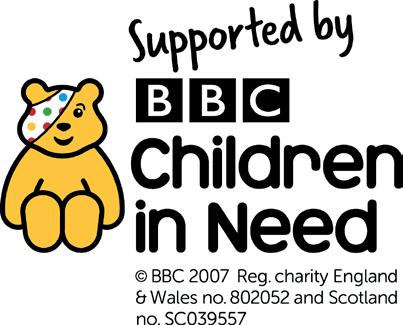
Evan Cornish Foundation
Garfield Weston Foundation

Greene Tweed Trust
Jessie Spencer Trust

JN Derbyshire Trust Justice Together
Lloyds Bank Foundation
Loughborough Town of Sanctuary
Martin Lewis Coronavirus Poverty Emergency Fund

NET Coronavirus Appeals Programme

Nottingham City Council Refugee Action
The AB Charitable Trust

The Buckland Charitable Trust
The Gordon Trust
The Henry Smith Charity


The Jones 1986 Charitable Trust

The Lady Hind Trust

The Magdalen College Trust
The Mbili Charitable Trust
The National Lottery Coronavirus Community Support Fund
The National Lottery Community Fund and The European Social Fund
The Postcode Community Trust
The Schroder Trust
The SCSJD Charitable Trust
The Souter Charitable Trust
The Southall Trust
Weston Charity Awards
Whitaker Charitable Trust
54




















































 Lisa Kouyomjian-Stanton and Fiona Corbett for their voluntary one-to-one psychotherapeutic work with clients
Public Health Nottingham City for their support and escalating complex casework issues
Hermione Berthels and all General Advice supervisors and volunteers for continuing to support the project
Sue Clague and Lewis Etoria at NHS Nottingham and Nottinghamshire Clinical Commissioning Group (CCG) for championing the project’s viewpoints on the health needs of clients and offering important platforms to feed into CCG work
Richard Buckwell from Nottingham & Nottinghamshire Keep Our NHS Public and Aliya Yule from the Patients Not Passports network for collaborating on campaigning issues
Lisa Kouyomjian-Stanton and Fiona Corbett for their voluntary one-to-one psychotherapeutic work with clients
Public Health Nottingham City for their support and escalating complex casework issues
Hermione Berthels and all General Advice supervisors and volunteers for continuing to support the project
Sue Clague and Lewis Etoria at NHS Nottingham and Nottinghamshire Clinical Commissioning Group (CCG) for championing the project’s viewpoints on the health needs of clients and offering important platforms to feed into CCG work
Richard Buckwell from Nottingham & Nottinghamshire Keep Our NHS Public and Aliya Yule from the Patients Not Passports network for collaborating on campaigning issues































































